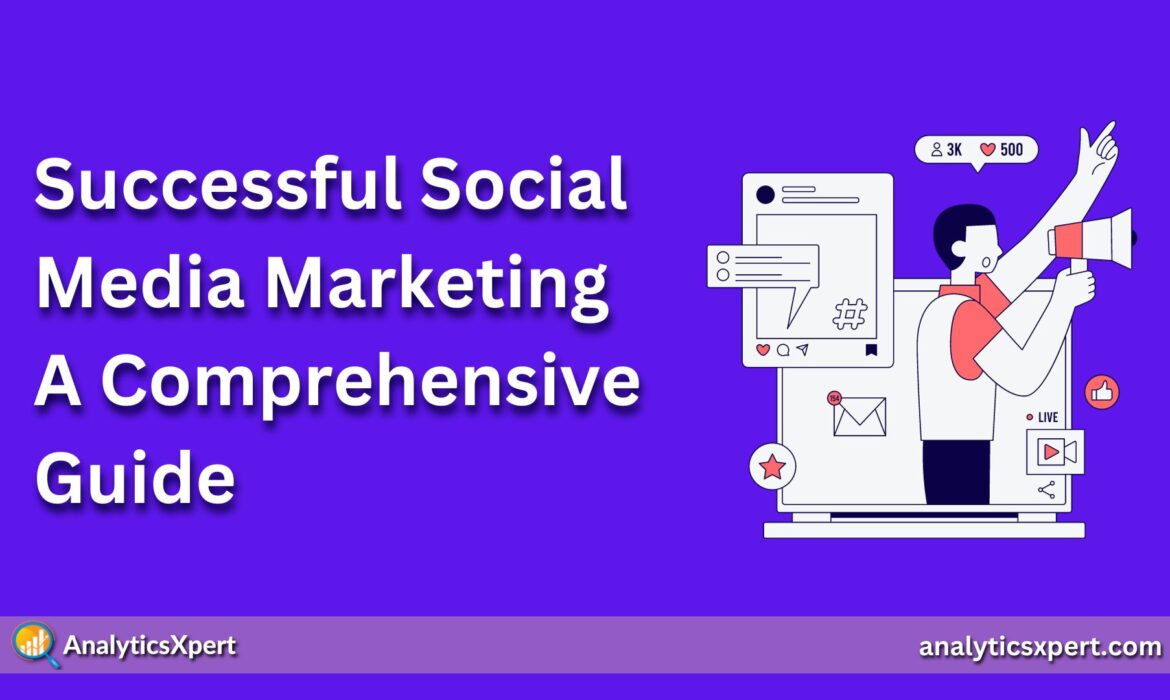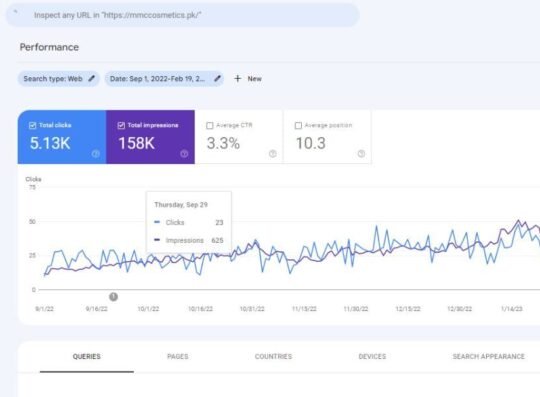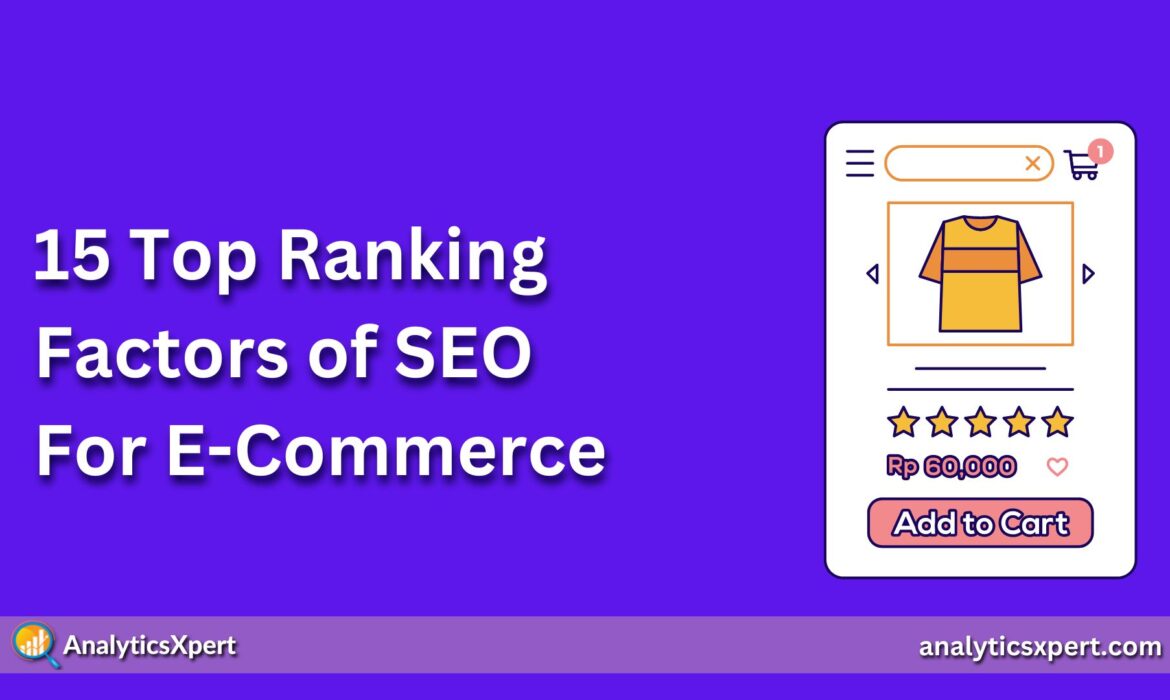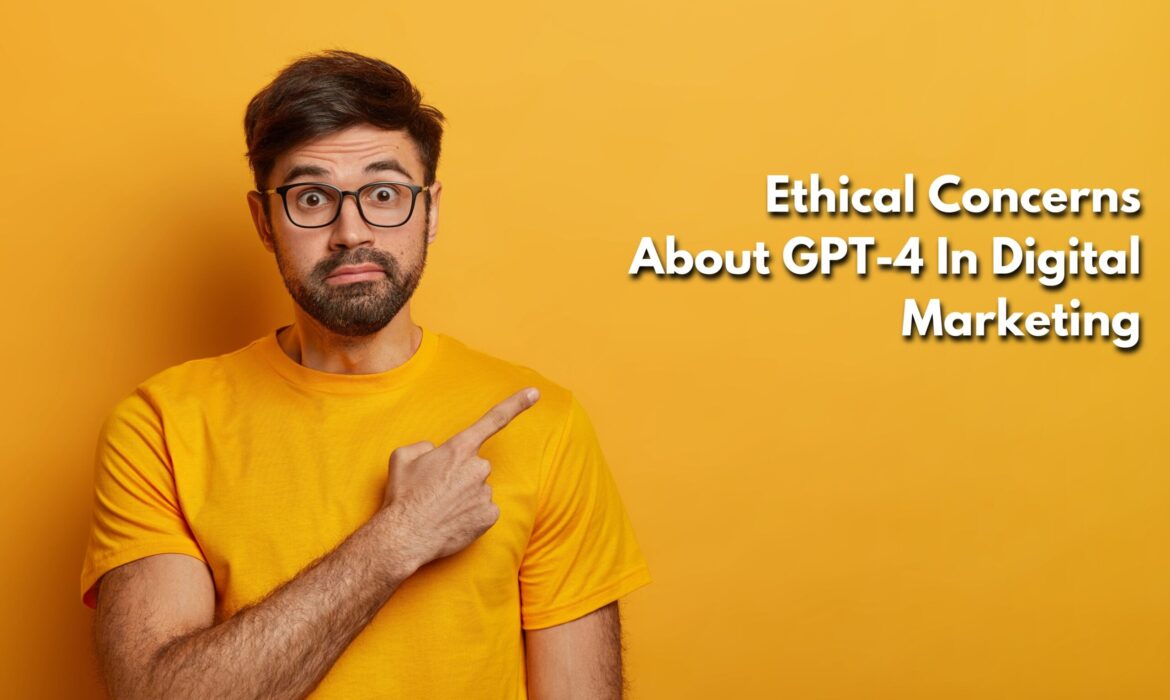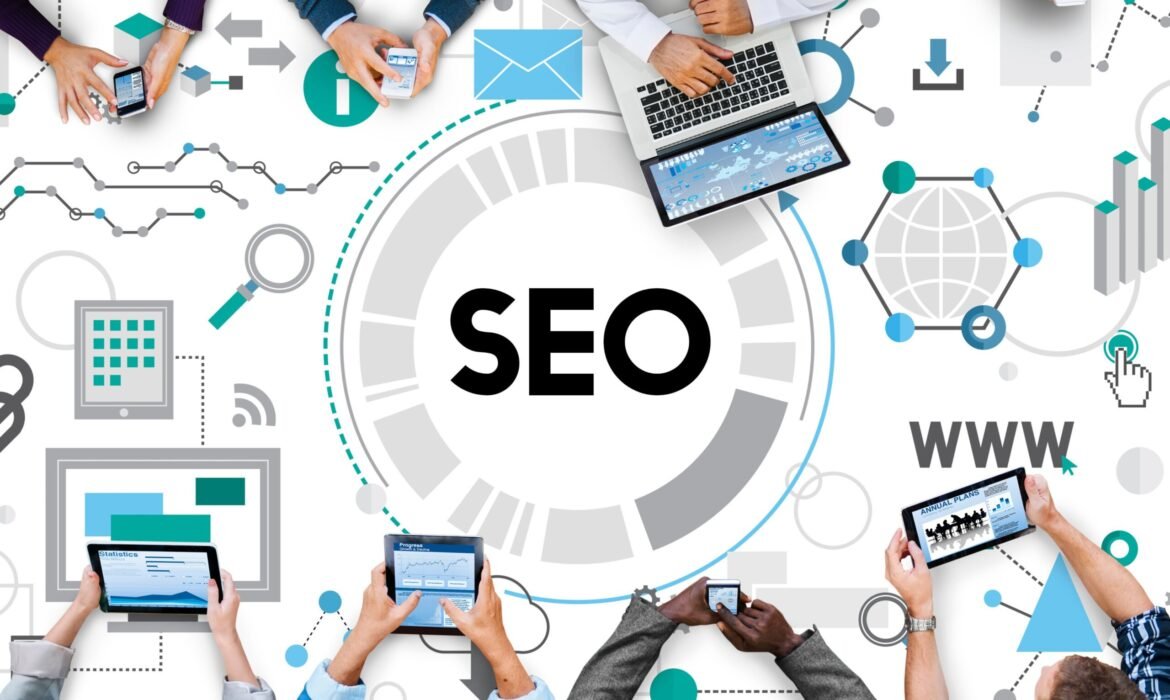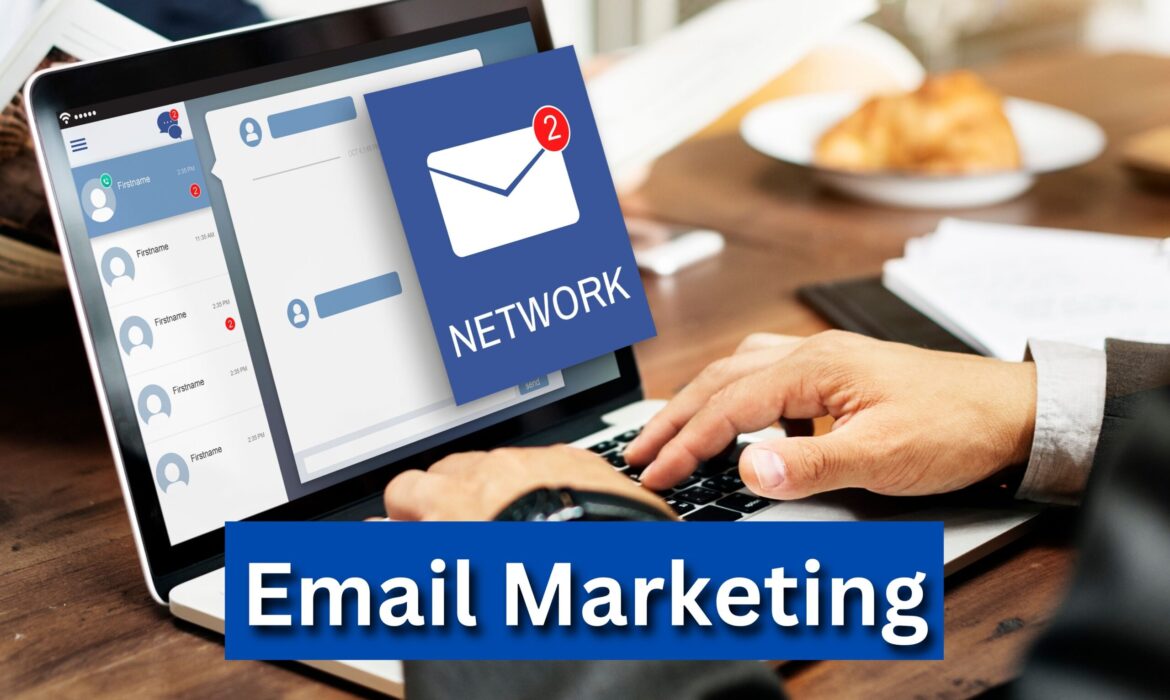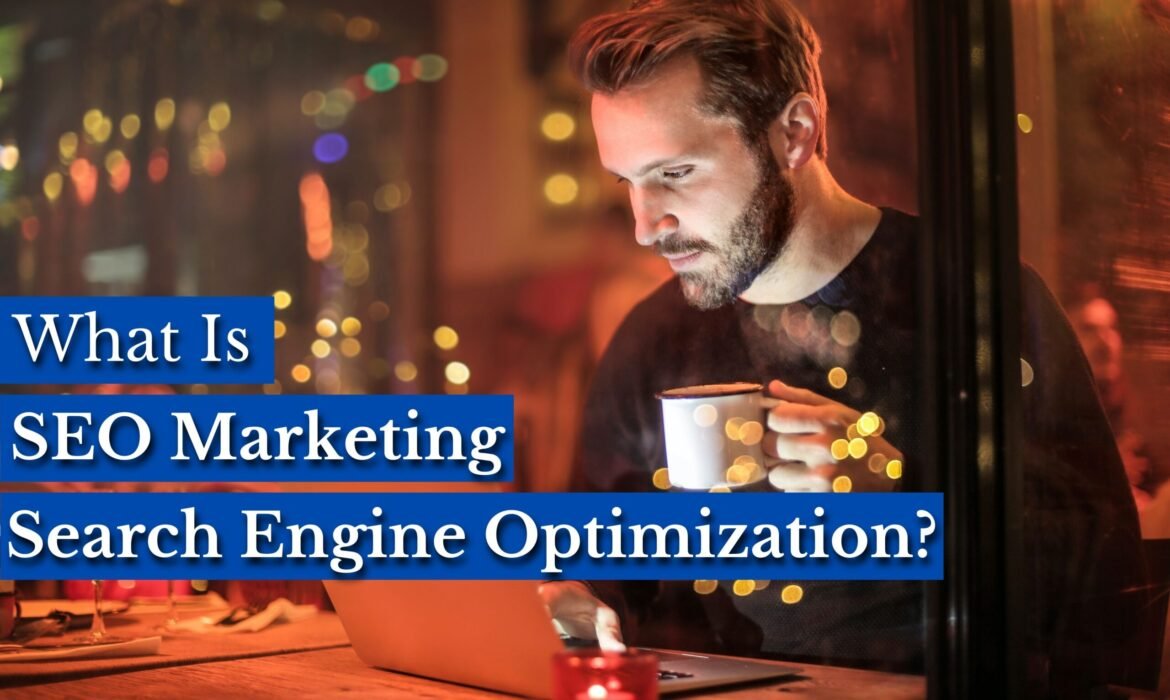Local SEO: Ultimate Guide to Dominate Local Market in 2024
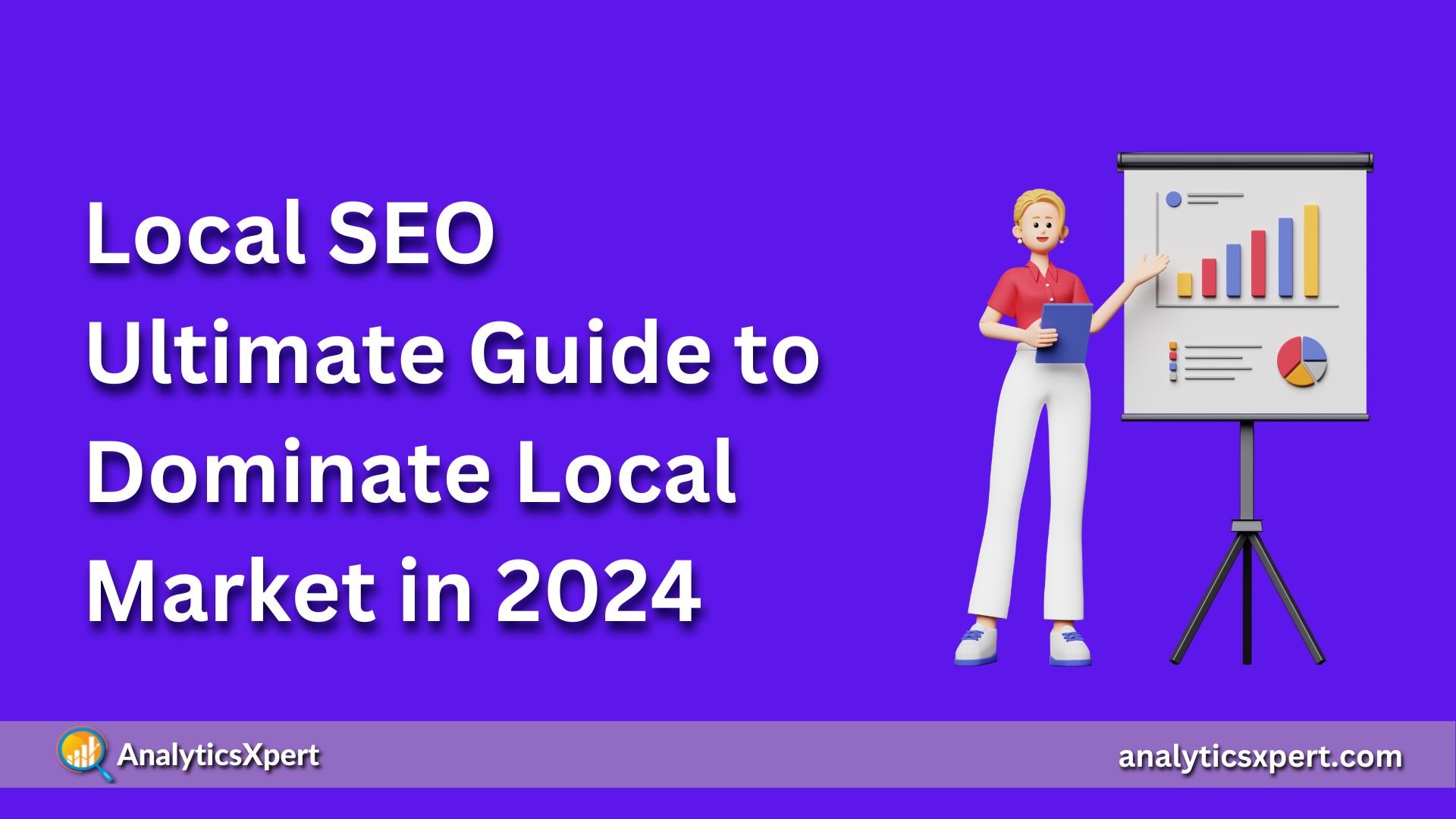
Table of Contents
Local SEO (Search Engine Optimization) is a crucial strategy for businesses looking to increase their visibility in local search results on search engines like Google. This comprehensive guide will delve into the intricacies of local SEO, its importance, and practical steps businesses can take to optimize their local online presence and find which SEO is best for long run.
Understanding Local SEO
Local SEO refers to the process of optimizing your online presence to attract more business from relevant local searches. These searches take place on Google and other search engines. Often, local search involves “near me” queries, where users are looking for a specific service or product in their immediate geographic area.
Why Local SEO is Important
The importance of local SEO cannot be overstated. Consider these compelling statistics:
- 88% of consumers who search for a local business on their smartphone will visit or call the business within 24 hours. (Source: Google)
- 72% of consumers trust a local business with a well-optimized Google My Business listing more than a national brand. (Source: LocalSEOGuide.com)
- Local businesses with optimized Google My Business listings experience 59% more phone calls and 72% more website visits. (Source: Moz)
These figures clearly demonstrate the immense potential of local SEO. By implementing effective strategies, you can tap into this potential, attract qualified leads, and achieve significant growth for your business.
Now look at its results-based benefits:
- Increased Visibility: Local SEO helps businesses appear in local search results, which is vital as a significant portion of users rely on online searches to find local information.
- Targeted Traffic: It attracts traffic from users who are likely to convert because they are searching for products and services in their vicinity.
- Competitive Edge: By optimizing for local SEO, businesses can stand out in local searches and gain an edge over competitors who are not utilizing local SEO effectively.
Key Components of Local SEO
Several crucial factors influence how search engines rank businesses in local search results. Understanding these factors is crucial for optimizing your online presence and achieving high visibility.
Google My Business:
Claiming and optimizing your Google My Business listing is an essential first step. This involves ensuring all your information is accurate and consistent, including your NAP (Name, Address, Phone number), business description, service areas, operating hours, and high-quality photos.
Citations:
Building positive citations across various online platforms like business directories, social media profiles, and review sites strengthens your online presence and boosts your ranking. Ensure consistency in your NAP across all platforms.
Local Backlinks:
Earn backlinks from high-authority websites in your local area. This signifies to search engines that your business is trustworthy and relevant to local searches.
Local Keywords:
Use keywords that reflect local search queries. Tools like Google Keyword Planner can help identify local keywords relevant to your business.
On-Page SEO for Local Businesses:
On page SEO includes optimizing title tags, meta descriptions, and content with local keywords. Ensure your NAP (Name, Address, Phone Number) information is consistent across your website.
Reviews and Ratings:
Encourage satisfied customers to leave positive reviews on Google My Business, Yelp, and other review sites. Responding promptly and professionally to all reviews, especially negative ones, demonstrates your commitment to customer service and builds trust.
Mobile Optimization:
With the increasing use of mobile devices for local searches, ensure your website is mobile-friendly.
Deep Dive into Local SEO Strategies
Google My Business Optimization
- Claim and Verify Your Listing: Ensure you claim your GMB listing and verify your business.
- Accurate Information: Keep your business name, address, phone number, and operating hours up-to-date.
- Categories: Choose categories that accurately describe your business.
- Photos and Videos: Regularly update your listing with high-quality photos and videos of your business.
Local Keyword Optimization
- Research: Use tools like Google’s Keyword Planner to find local keywords.
- Content Creation: Create content that incorporates local keywords naturally.
- Local Landing Pages: If you serve multiple locations, consider creating separate landing pages for each location.
On-Page SEO for Local Businesses
- NAP Consistency: Ensure your business’s NAP is consistent across your website and other online platforms.
- Local Content: Create content that speaks to local audiences, like news, events, or local services.
- Schema Markup: Use schema markup to provide search engines with detailed local business information.
Building Local Links
- Local Partnerships: Collaborate with local businesses for link exchanges.
- Local Directories: List your business in reputable local directories.
- Community Involvement: Participate in community events and sponsorships, which can lead to local media coverage and links.
Managing Online Reviews and Ratings
- Encourage Reviews: Ask satisfied customers to leave reviews.
- Respond to Reviews: Engage with reviewers, thank customers for positive reviews, and address negative feedback professionally.
- Monitor Your Reputation: Regularly check your reviews and ratings on various platforms.
Mobile Optimization
- Responsive Design: Ensure your website adapts to different screen sizes.
- Page Speed: Optimize your website’s loading time, especially for mobile users. You can checkout your page speed using the page speed insights tool.
- User Experience: Focus on creating a seamless mobile user experience.
Advanced Local SEO Techniques
- Voice Search Optimization: Optimize for voice search queries, which are often local and conversational in nature.
- Hyperlocal Targeting: Focus on very specific neighborhoods or areas within your city.
- Local Events and Sponsorships: Hosting or sponsoring local events can increase local visibility and backlinks.
- Utilizing Social Media: Engage with local audiences on social media platforms.
Measuring Local SEO Success
- Google Analytics: Track website traffic and user behavior.
- Google My Business Insights: Analyze how customers find your GMB listing and their actions.
- Rank Tracking: Use tools to track your local search rankings for key terms.
Conclusion
Local SEO is an ongoing process that requires regular attention and adaptation to changing search algorithms and local market trends. By implementing the strategies outlined in this guide, businesses can significantly improve their local search visibility, attract more targeted traffic, and gain a competitive edge in their local market. Remember, the key to successful local SEO is consistency, quality, and engagement with your local community. Work on these 15 Top Ranking Factors of SEO For E-Commerce along with your local SEO especially if you are running an e-commerce brand.
What is Local SEO?
Local SEO is the process of optimizing your online presence for local search results. This means making it easier for people in your area to find your business online.
Why is Local SEO important?
Local SEO is important because it helps you attract more customers who are looking for businesses like yours in your area. Nearly 80% of local mobile searches result in store visits within 24 hours, so it’s crucial to be visible in local searches.
What are some common mistakes businesses make with Local SEO?
Some common mistakes businesses make with Local SEO include:
Not claiming or optimizing their Google My Business listing
Using inconsistent NAP (Name, Address, Phone number) across all online platforms
Not creating local content
Ignoring negative reviews
Not tracking their Local SEO progress
What are some tools that can help me with Local SEO?
Some tools that can help you with Local SEO include:
Google My Business Insights
Moz Local
Semrush
Whitespark
Yext
How long does it take to see results from Local SEO?
It can take anywhere from a few weeks to a few months to see results from Local SEO, depending on the competitiveness of your industry and how well you implement your strategies. However, with consistent effort and patience, you can see significant improvements in your local search rankings and website traffic.
Do I need to hire a professional to do Local SEO for me?
You don’t necessarily need to hire a professional to do Local SEO for you, especially if you have a small business. However, if you have a large business or are struggling to achieve the results you want, it may be helpful to work with an agency offering expert SEO services like AnalyticsXpert. They can help you develop a comprehensive strategy, implement best practices, and track your progress.
What is the future of Local SEO?
The future of Local SEO is bright. Local search is becoming increasingly important, and businesses that invest in Local SEO will be well-positioned to attract new customers and grow their business. We can expect to see even more innovations in Local SEO technology, such as voice search and artificial intelligence, in the future.
Successful Social Media Marketing
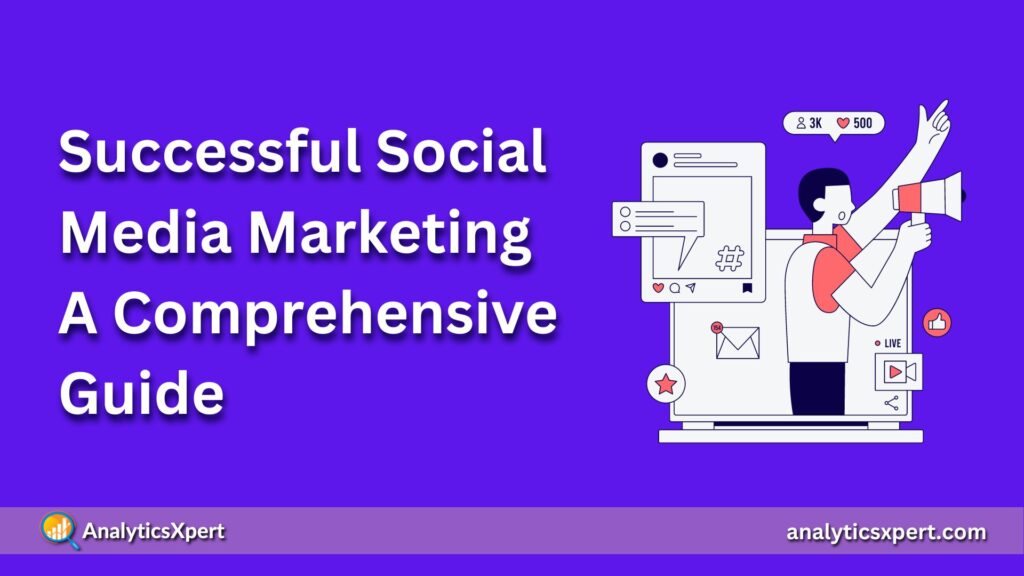
In today’s digital world, successful social media marketing is like a cool superpower that businesses use to connect with people all over the internet. Imagine it as a way to make friends and share exciting stuff about your brand. It’s a big deal because when you do successful social media marketing right, your business can shine like a star online!
Consider these 11 methods for successful social media marketing
Understanding Your Audience
Think about your friends – they all like different things, right? Well, the same goes for people on social media. You need to know who your fans are and what they like first for successful social media marketing. This helps you create posts that make them happy and interested in what you offer.
Setting Clear Objectives
Imagine having a treasure map with a big “X” that shows you where to find the treasure. That’s what objectives are – they’re like the map to guide your social media adventure. You need to set clear goals, like getting more people to know about your brand or making them want to buy your cool stuff.
Choosing the Right Platforms
Social media is like a huge playground with different areas. You don’t need to play everywhere – just where your friends hang out. That’s why you choose platforms like Instagram, Facebook, or TikTok, depending on who you want to talk to
Crafting Compelling Content
emember sharing your exciting news with friends? Well, social media is like that when you want to learn how to write compelling content on social media. You share fun, useful, and interesting stuff about your brand. It could be pictures, videos, or stories that make people say, ‘Wow, I want to know more!’
Consistent Posting and Engagement
Imagine talking to your friends only once in a while – that wouldn’t be fun, right? Same goes for social media. You need to post often and reply when people talk to you. It’s like keeping the conversation going
Utilizing Hashtags and Keywords
Hashtags are like magic phrases that direct people to your posts. They’re like treasure map clues. And keywords are the words people type when searching for stuff. Using the right words helps them find you easily
Analyzing and Adjusting Strategies
Ever play a game and keep track of your score? That’s what you do with social media. You see which posts get lots of likes, comments, and shares. Then you make your next moves better based on what people liked
Building a Community
Think of social media as a big party where you’re the host. You want everyone to have fun and feel welcome. So, talk to people, ask them questions, and make them feel like part of your gang
Paid Advertising and Influencer Marketing
Sometimes, you need a little boost to make sure more people see your posts. It’s like telling more friends about your cool party. You can also ask popular people (influencers) to talk about your brand – it’s like getting a superstar to mention you!
Staying Updated with Trends
Just like you keep up with the latest games or fashion, you need to know what’s hot on social media. New features and ideas pop up all the time. You want to be in the loop so your posts stay fresh and exciting
Case Studies of Successful Social Media Marketing Campaigns
Imagine hearing stories about how other kids had amazing adventures. Well, brands have their stories too! We’ll check out some companies that did super well on social media and learn from their success.
Conclusion
So, that’s the exciting world of social media marketing! It’s like having a bunch of cool tools to tell everyone about your brand. Remember, just like in a game, you learn, try new things, and have fun along the way. So, let’s dive in and make your brand shine on social media, and discover how social media marketing can help your business!
How to Create a Digital Marketing Strategy
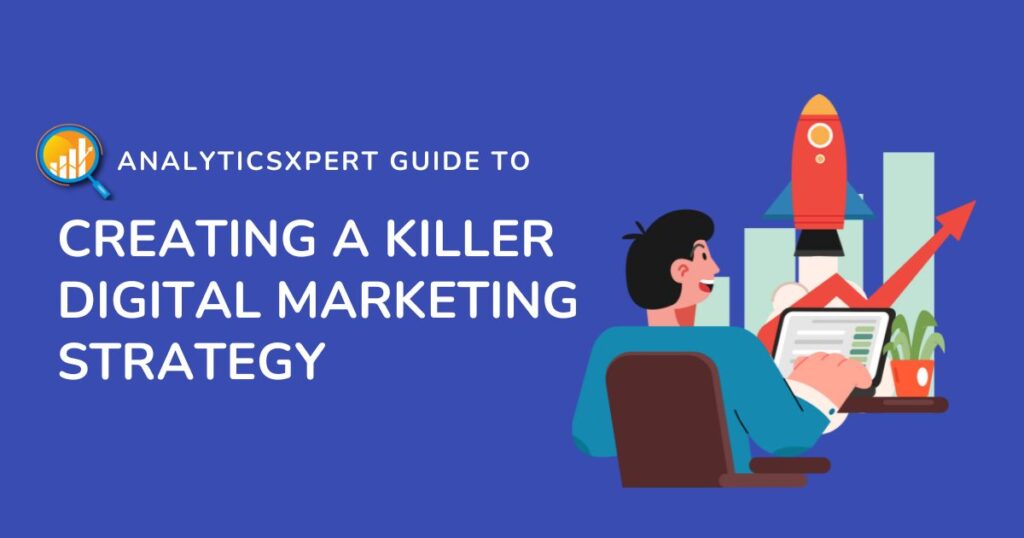
In the ever-evolving realm of digital marketing, learning how to create a digital marketing strategy that is effective and comprehensive, serves as the compass guiding businesses towards success.
The era of traditional advertising has given way to an increased number of opportunities within the digital domain. In this extensive guide, we will delve into the complexities of creating a digital marketing strategy that not only flourishes but also thrives in today’s fiercely competitive online arena.
Understanding the Digital Landscape
Before diving into the details of an impeccable marketing strategy, it is important to have an understanding of the digital landscape. This includes understanding the platforms, channels, and technologies at your disposal. From social media marketing to email marketing, content creation to search engine optimization (SEO), each element plays a distinctive role in reaching and captivating your target audience and creating a killer digital marketing strategy for your business.
Establishing Clear Objectives
To create a digital marketing strategy, businesses must start with clear objectives and an understanding of business goals, which could be getting more website traffic, increasing sales or simply creating brand awareness. identifying your business objectives helps in setting the pace for digital marketing efforts.
Connecting with your Ideal Customer
Comprehending your audience stands as the pillar of effective digital marketing. Who precisely constitutes your ideal clientele? What are their inclinations, pain points, and online behavioral patterns? The creation of meticulous buyer personas facilitates the customization of your strategy, enabling it to resonate profoundly with your target demographic.
Crafting Captivating Content
Content assumes the pivotal role of the heart in the realm of digital marketing. From the creation of compelling blog posts to engaging videos, from attention-grabbing infographics to informative podcasts, the construction of top-tier, compelling content stands paramount. It not only ensnares the attention of your audience but also solidifies your eminence and fosters trust.
However, with several AI tools such as ChatGPT available, content creation has become increasingly simple, but it also poses some challenges. It is important to consider the ethical considerations of ChatGPT for content generation.
Driving Organic Traffic with SEO
Search engine optimization (SEO) stands as the driving force propelling organic traffic towards your website. By optimizing your content and the structure of your website, you enhance your visibility across search engine results pages (SERPs).
Mastering the Dynamics of Social Media Marketing
When crafting a digital marketing strategy, the right social media marketing tactics can have a significant impact on your overall business success. Social media platforms serve as a dynamic source of engagement and brand promotion.
To create an impactful digital marketing strategy, identify the platforms where your target audience is most likely to be present, and craft compelling content that drives engagement and action.
The Role of Email Marketing
Email continues to be an effective tool for communication and conversion.
With email marketing, a direct line of communication is established with your audience, ensuring that your message lands directly into their inbox.
Creating an effective digital marketing strategy involves growing an email list of your audience, crafting personalized messages for different segments of your target audience as a way of not only driving engagement and conversion, but also fostering trust and loyalty.
Monitoring and Optimization
Digital Marketing efforts are futile if measurement and optimization are not incorporated into the overall strategy.
To create an effective digital marketing strategy, continuous monitoring of Key Performance Indicators (KPIs), and optimizing the performance for improved results must be taken into consideration.This ensures maximizing of results and fosters growth and adaptability into the digital marketing strategy.
The Crucial Role of Analytics
Analytics constitute invaluable assets that offer insights into the performance of your strategy.
Businesses can gain insights into consumer behavior, campaign performance and marketing trends by using analytical tools and dashboards.
Conclusion
In today’s fast-paced and highly competitive business environment, having a strategic digital marketing approach is the key to not only surviving but also thriving.
As technology advances and consumer behavior evolves, the need for creating a robust and well-executed digital marketing strategy becomes increasingly critical.
By setting clear goals, identifying the target audience, crafting engaging content, harnessing the power of Social Media Platforms, SEO and email marketing, and continuously monitoring and optimizing the strategy, businesses can position themselves for long-term success and sustainability.
Frequently Asked Questions FAQs
Q: What is the significance of digital marketing in today’s business landscape?
A: In today’s business landscape, digital marketing holds immense significance as it provides a cost-effective avenue for reaching a global audience, fostering brand recognition, and stimulating conversions. It empowers businesses to connect directly with their target audience and adapt swiftly to evolving consumer behaviors. Check out our post on why digital marketing is crucial for business.
Q: How can I determine which digital marketing channels are best suited for my business?
A: Determining the most suitable digital marketing channels hinges on your target audience and objectives. Conducting thorough market research and constructing detailed buyer personas will aid in identifying the most effective channels to reach your ideal clientele.
Q: What key performance indicators (KPIs) should I employ to assess the success of my digital marketing strategy?
A: Commonly employed KPIs encompass website traffic metrics, conversion rates, click-through rates (CTR), social media engagement statistics, email open rates, and return on investment (ROI). The choice of specific KPIs should align with the objectives of your strategy.
Q: Does SEO remain relevant in the realm of digital marketing?
A: Absolutely, SEO retains its pivotal role in digital marketing. It ensures the discoverability of your content and website on search engines, thereby steering organic traffic and heightening online visibility.
Q: How frequently should I revisit and revise my digital marketing strategy?
A: Digital marketing is characterized by its dynamic nature, necessitating periodic review and adjustment of strategies. Commencing with quarterly reviews and updates, the frequency may fluctuate in response to evolving industry trends and shifts in the behavior of your target audience.
Comprehending your audience stands as the bedrock of effective digital marketing. Who precisely constitutes your ideal clientele? What are their inclinations, pain points, and online behavioral patterns? The creation of meticulous buyer personas facilitates the customization of your strategy, enabling it to resonate profoundly with your target demographic.
15 Top Ranking Factors of SEO For E-Commerce
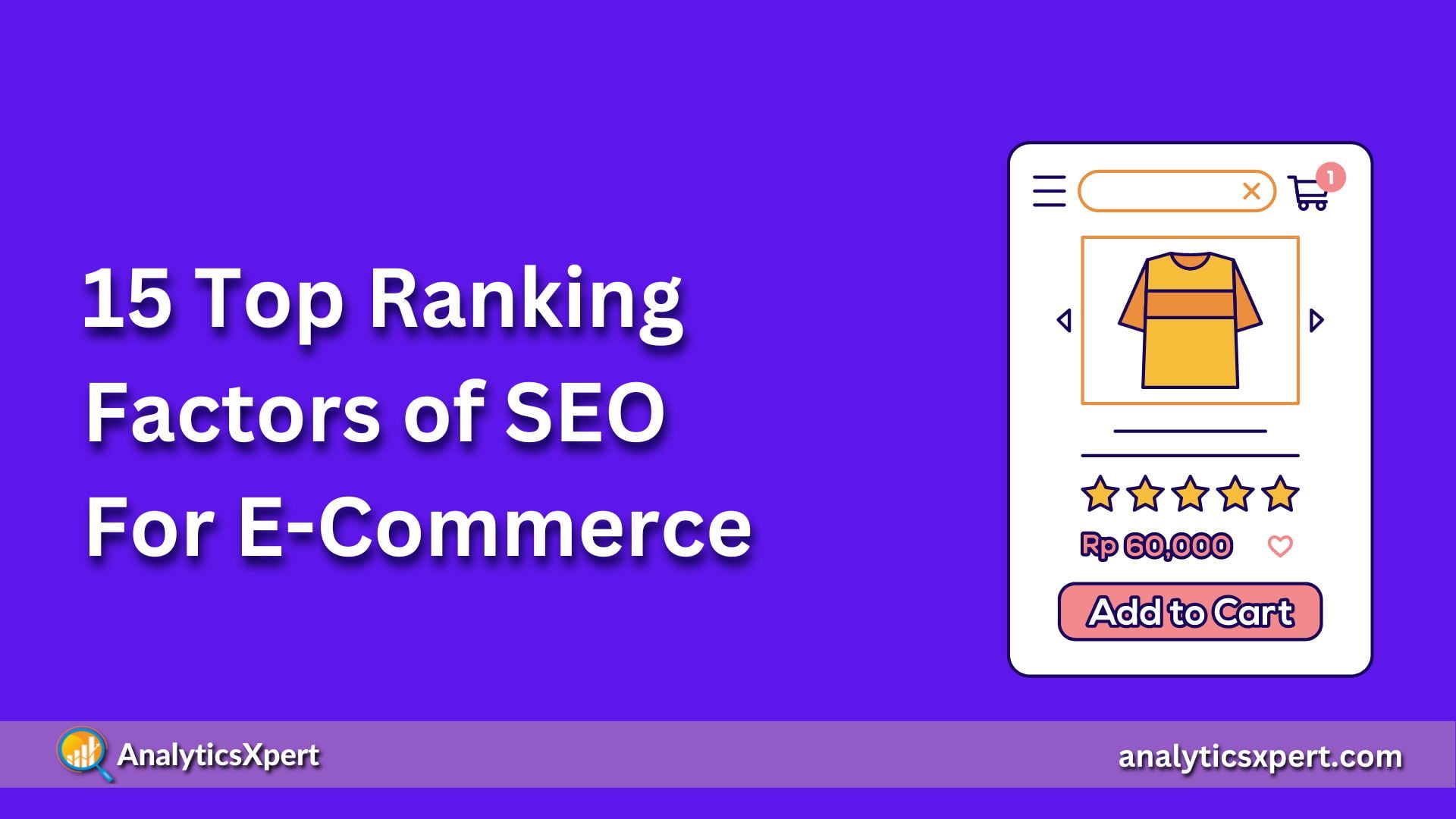
Effective SEO for E-commerce websites is the key to elevating visibility, traffic, and conversions. In modern times, the importance of having an effective website for your business cannot be ignored. With several e-commerce websites emerging frequently, it is crucial to do proper SEO for e-commerce websites to generate more traffic by gaining more online visibility.
In this article, we take a closer look at effective SEO strategies especially tailored for e-commerce websites, to help them succeed in the competitive world of online retail.
Introduction: The Importance of SEO for E-commerce
In the present-day challenges of online retail, having a functional website isn’t enough.
Your potential customers must be able to find your business. SEO for e-commerce plays a pivotal role in making your website rank higher on search engines, and thereby driving more traffic to your website, increasing the overall conversions.
Keyword Research: The Foundation of SEO For E-commerce
Effective SEO for e-commerce starts with thorough keyword research. Identify keywords that align with your products and resonate with your target audience’s search intent. Long-tail keywords are particularly valuable for e-commerce, as they capture specific queries and indicate higher purchase intent.
On-Page Optimization: Tailoring Your Product Pages
Optimizing your product pages by incorporating relevant keywords into titles, meta descriptions, headers, and product descriptions is crucial for the proper SEO of e-commerce website. Use high-quality images and optimize their alt text for better visibility in image searches. The product descriptions should also focus on the keywords.
Technical SEO: Ensuring Smooth Site Performance
A well-structured website with fast load times is crucial for user experience and SEO for e-commerce. Ensure proper indexing, optimize your website’s speed, and implement schema markup to enhance search engine understanding of your products.
User Experience: Enhancing Navigation and Engagement
A seamless user experience is vital to prevent bounce-off, boosting efforts of SEO for e-commerce websites and ultimately leading to more conversions. Organize your products into categories, implement a clear navigation menu, and make the checkout process as smooth as possible. Engage users with compelling call-to-actions and interactive elements.
Content Creation: Building Authority and Engagement
Content Marketing is perhaps the most powerful way to boost SEO for e-commerce websites. Create informative and engaging content related to your products. This could include blog posts, buying guides, and how-to articles. Valuable content not only engages users but also attracts backlinks, boosting your site’s authority.
Mobile Optimization: Capturing the Mobile Shopper
With the rise of mobile shopping, optimizing your website for mobile devices is non-negotiable. A responsive design, fast mobile load times, and user-friendly navigation are essential for catering to mobile shoppers. To boost SEO for e-commerce websites, ensure that the website is tailored to meet the demands of mobile users, allowing seamless experience across various devices.
Local SEO: Connecting with Local Customers
If you have a physical store or serve a local audience, local SEO is indispensable. Optimize your Google My Business listing, acquire local citations, and encourage customer reviews to enhance local visibility. This will give an immense boost to your SEO of e-commerce websites.
E-commerce Link Building: Establishing Authority
Build high-quality backlinks from reputable websites. Collaborate with influencers, guest post on industry blogs, and ensure your products are featured in relevant online publications. Good quality links are a great boost to SEO for e-commerce websites.
Product Descriptions: Balancing SEO and Persuasion
Craft compelling and informative product descriptions that not only incorporate keywords but also persuade customers to make a purchase. Highlight the benefits and unique selling points of each product.
E-commerce SEO Tools: Empowering Your Strategy
Utilize SEO tools like SEMrush, Ahrefs, and Moz to conduct competitor analysis, track keyword rankings, and identify opportunities for improvement. By analyzing the metrics from these tools, you can boost SEO for e-commerce website.
Measuring Success: Metrics for E-commerce SEO
Measure the effectiveness of your efforts of SEO for e-commerce through metrics like organic traffic, conversion rates, average order value, and search engine rankings.
E-commerce SEO Pitfalls to Avoid
Beware of common pitfalls such as duplicate content, thin product descriptions, and neglecting mobile optimization. Though seemingly harmless, such practices can greatly hinder your SEO efforts for e-commerce website.
Future Trends: Evolving Your E-commerce SEO
Stay updated with evolving SEO trends, such as voice search optimization, visual search, and AI-powered customer experiences. The key to effective SEO for e-commerce and thereby, establishing a successful business presence, is to stay on top of emerging trends and seamlessly incorporate them into your digital marketing strategy.
Conclusion: Elevate Your E-commerce with Effective SEO
By implementing a comprehensive SEO strategy, e-commerce businesses can thrive in the digital realm. From keyword research to user experience enhancements, each step contributes to better visibility, increased traffic, and higher sales.
It is important to understand that SEO is an ongoing process, and you must continuously adapt your strategies to stay ahead of the competition.
You can also try out our affordable SEO services for small businesses at AnalyticsXpert.
How long does it take to see results from e-commerce SEO efforts?
SEO is a long-term strategy. You may start seeing improvements in your e-commerce website’s SEO within a few months, but significant results can take six months to a year.
Is mobile optimization really necessary for e-commerce?
Absolutely. Mobile optimization is crucial as a large portion of online shoppers use mobile devices to browse and shop.
How often should I update my product descriptions?
Regularly update your product descriptions to keep them fresh, accurate, and aligned with any changes in your offerings.
Can I handle SEO for my e-commerce website on my own?
While basic SEO can be done in-house, working with SEO experts can yield more comprehensive and effective results for your e-commerce website
What role do reviews play in e-commerce SEO?
Positive customer reviews not only build trust but also enhance the website’s credibility and rankings, boosting SEO for your e-commerce website.
The ethical considerations of using GPT-4 in digital marketing

GPT-4 is the latest natural language processing (NLP) model from OpenAI. With improved capabilities, it is anticipated to revolutionize the field of digital marketing, enabling businesses to generate high-quality content and automate customer service interactions. However, while GPT-4 holds great promise for the industry, it also raises a range of ethical considerations that need to be taken into account.
In this article, we explore the ethical considerations of using GPT-4 in digital marketing. You should also know why digital marketing is important now a days.
Table Of Contents
Introduction
Potential for Misleading or False Information
Privacy Concerns
Bias and Discrimination
Transparency
Intellectual Property
FAQs
Conclusion
What is GPT-4?
GPT-4 is the latest version of OpenAI’s natural language processing (NLP) model. It is a highly advanced AI model that can generate human-like text and perform tasks such as language translation, summarization, and question-answering. GPT-4 uses deep learning algorithms to analyze and understand human language patterns and generate text that is difficult to distinguish from text written by a human.
GPT-4 in Digital Marketing
GPT-4 has the potential to revolutionize the field of digital marketing. It can help businesses create content that is engaging, informative, and relevant to their target audience. With GPT-4, businesses can automate customer service interactions, providing quick and personalized responses to customer queries. Moreover, GPT-4 can also help businesses improve their SEO strategies by generating high-quality content that is optimized for search engines.
Ethical Considerations of Using GPT-4 in Digital Marketing
Despite its many benefits, the use of GPT-4 in digital marketing also has a dark side. Let us explore these concerns in detail.
Misleading Information
One of the most significant ethical concerns related to GPT-4 is the potential for the generation of misleading or false information. As GPT-4 can generate human-like text, it may be challenging to distinguish between content generated by a machine and content written by a human. This raises the risk of businesses using GPT-4 to generate false information to manipulate their audience, which can lead to negative consequences.
Privacy Concerns:
Another ethical concern with the use of GPT-4 in digital marketing is the risk of privacy violations. GPT-4 uses a massive amount of data to train itself and improve its accuracy. Therefore, businesses that use GPT-4 need to collect a vast amount of customer data, including personal information such as names, email addresses, and other sensitive data. This raises the risk of privacy breaches and data theft, which can have severe consequences for customers and businesses.


Bias and Discrimination
GPT-4 is not immune to bias and discrimination. The AI model is only as unbiased as the data used to train it. Therefore, if the data used to train GPT-4 contains biases, these biases can be reflected in the content generated by the model. This can lead to the generation of content that is discriminatory, prejudiced, or otherwise harmful to certain groups of people.
Transparency
Another ethical consideration of using GPT-4 in digital marketing is the issue of transparency. Businesses that use GPT-4 to generate content need to be transparent about the use of the technology. This includes disclosing to their audience that the content is generated by an AI model and not a human. Failure to disclose the use of AI-generated content can lead to the creation of misleading or false impressions and damage the trust between businesses and their customers.
Intellectual Property
The use of GPT-4 in digital marketing raises concerns about intellectual property rights. The content generated by GPT-4 is considered a form of intellectual property, and businesses need to ensure that they have the appropriate licenses and permissions to use the content. Failure to obtain the necessary permissions can lead to copyright infringement and legal consequences.
FAQs About GPT-4 Role In Digital Marketing
Here are some frequently asked questions (FAQs) related to the ethical considerations of using GPT-4 in digital marketing:
Q: What is GPT-4?
A: GPT-4 is the latest version of OpenAI’s natural language processing (NLP) model. It is a highly advanced AI model that can generate human-like text and perform tasks such as language translation, summarization, and question-answering.
Q: How can GPT-4 be used in digital marketing?
A: GPT-4 can help businesses create high-quality content that is engaging, informative, and relevant to their target audience. It can also be used to automate customer service interactions and improve SEO strategies by generating optimized content.
Q: What are the ethical considerations of using GPT-4 in digital marketing?
A: The ethical considerations of using GPT-4 in digital marketing include the potential for the generation of misleading or false information, privacy concerns, bias and discrimination, transparency, and intellectual property.
Q: Can GPT-4 generate false information?
A: Yes, GPT-4 has the potential to generate false information, which can lead to negative consequences for businesses and their customers.
Q: How can businesses ensure the ethical use of GPT-4 in digital marketing?
A: Businesses can ensure the ethical use of GPT-4 in digital marketing by taking steps to minimize the risk of generating misleading or false information, protecting customer privacy, ensuring the model is trained on unbiased data, being transparent about the use of AI-generated content, and obtaining the necessary licenses and permissions to use the content generated by the model.
Q: What are the consequences of using GPT-4 unethically in digital marketing?
A: Using GPT-4 unethically in digital marketing can lead to negative consequences such as damage to a business’s reputation, loss of customer trust, legal consequences, and financial losses.
Q: Can GPT-4 be biased?
A: Yes, GPT-4 can be biased if the data used to train it contains biases. This can lead to the generation of content that is discriminatory, prejudiced, or otherwise harmful to certain groups of people.
Q: How can businesses ensure that they use GPT-4 responsibly in digital marketing?
A: Businesses can ensure that they use GPT-4 responsibly in digital marketing by having a clear ethical framework in place, implementing strict data privacy policies, being transparent about the use of AI-generated content, and monitoring the content generated by the model to ensure that it meets ethical standards.
Conclusion
GPT-4 has the potential to revolutionize the field of digital marketing, enabling businesses to create high-quality content and automate customer service interactions. However, it also raises a range of ethical considerations that need to be taken into account. These ethical AI considerations in digital marketing include the potential for the generation of misleading or false information, privacy concerns, bias and discrimination, transparency, and intellectual property.
To address these ethical considerations, businesses that use GPT-4 need to ensure that they use the technology responsibly. This includes taking steps to minimize the risk of generating misleading or false information, protecting customer privacy, ensuring the model is trained on unbiased data, being transparent about the use of AI-generated content, and obtaining the necessary licenses and permissions to use the content generated by the model.
In conclusion, the use of GPT-4 in digital marketing holds great promise, but it also raises several ethical considerations. By being responsible and taking appropriate measures, businesses can use this technology to their advantage while also ensuring that they meet ethical standards and maintain the trust of their customers.
Choose AnalyticsXpert for Your Comprehensive Digital Marketing Needs
If you are looking for a digital marketing agency that can help you leverage the latest technologies and best practices to achieve your marketing goals, look no further than AnalyticsXpert. Our team of experts specializes in web development, SEO, PPC, SMM, email marketing, content writing, and graphic designing, and we are committed to helping our clients succeed in today’s competitive digital landscape. Contact us today to learn more about how we can help your business grow and thrive.
On Page SEO: A Complete Guide to Optimize Your Website
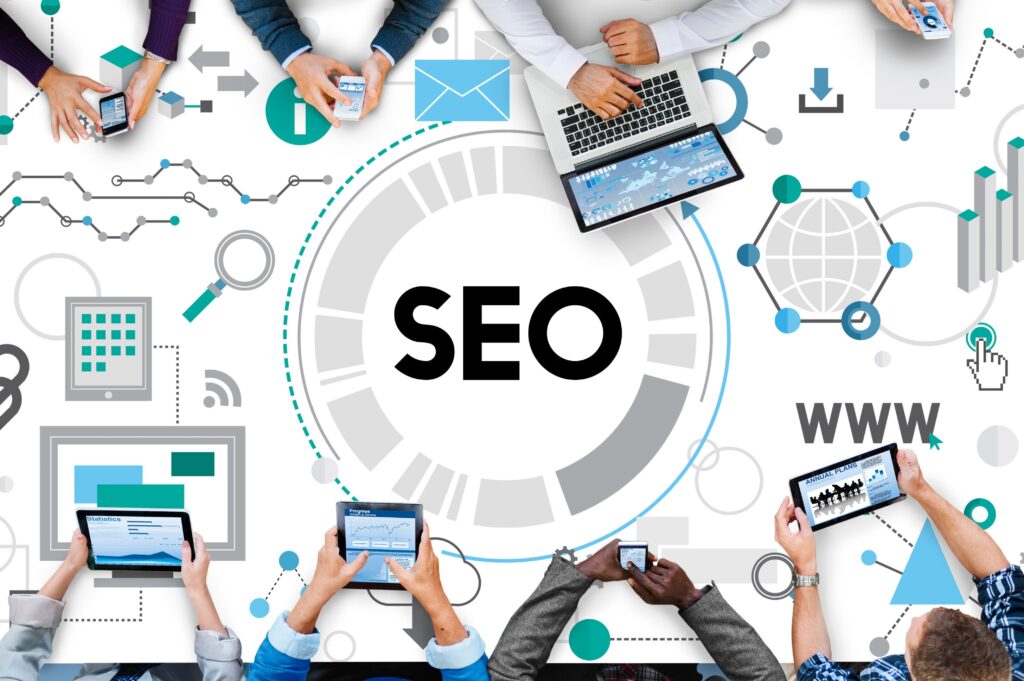
Search engine optimization (SEO) is crucial for any website looking to rank high in search engine results pages (SERPs). While there are numerous factors that impact a website’s ranking, on-page SEO is one of the most important. On-page SEO involves optimizing the content and structure of a website to make it more appealing to search engines.
In this article, we will provide you with a complete guide to on-page SEO for beginners, including what it is, why it matters, and how to do it effectively. Read also about which seo is best for the long run
What is On-Page SEO?
On-page SEO refers to the practice of optimizing individual web pages to rank higher in search engine results pages and earn more relevant traffic. It involves optimizing both the content and HTML source code of a page to make it more appealing to search engines.
Why is On-Page SEO Important?
On-page SEO is important because it helps search engines understand your website and its content better. By optimizing your content for on-page SEO, you can improve your website’s relevance, authority, and credibility in the eyes of search engines. This, in turn, can help you rank higher in search engine results pages, attract more traffic to your website, and ultimately, achieve your business goals.
The Elements of On-Page SEO
The following are the key elements of on-page SEO:
Content:
This includes the quality, relevance, and length of the content on your website.
Meta Tags:
These are the title tags, meta descriptions, and header tags that appear on your website.
URL Structure:
This refers to the structure of the URLs on your website.
Image Optimization:
This involves optimizing the images on your website for search engines.
Internal Linking:
This refers to the practice of linking to other pages on your website.
User Experience:
This includes factors such as page speed, mobile responsiveness, and ease of navigation.
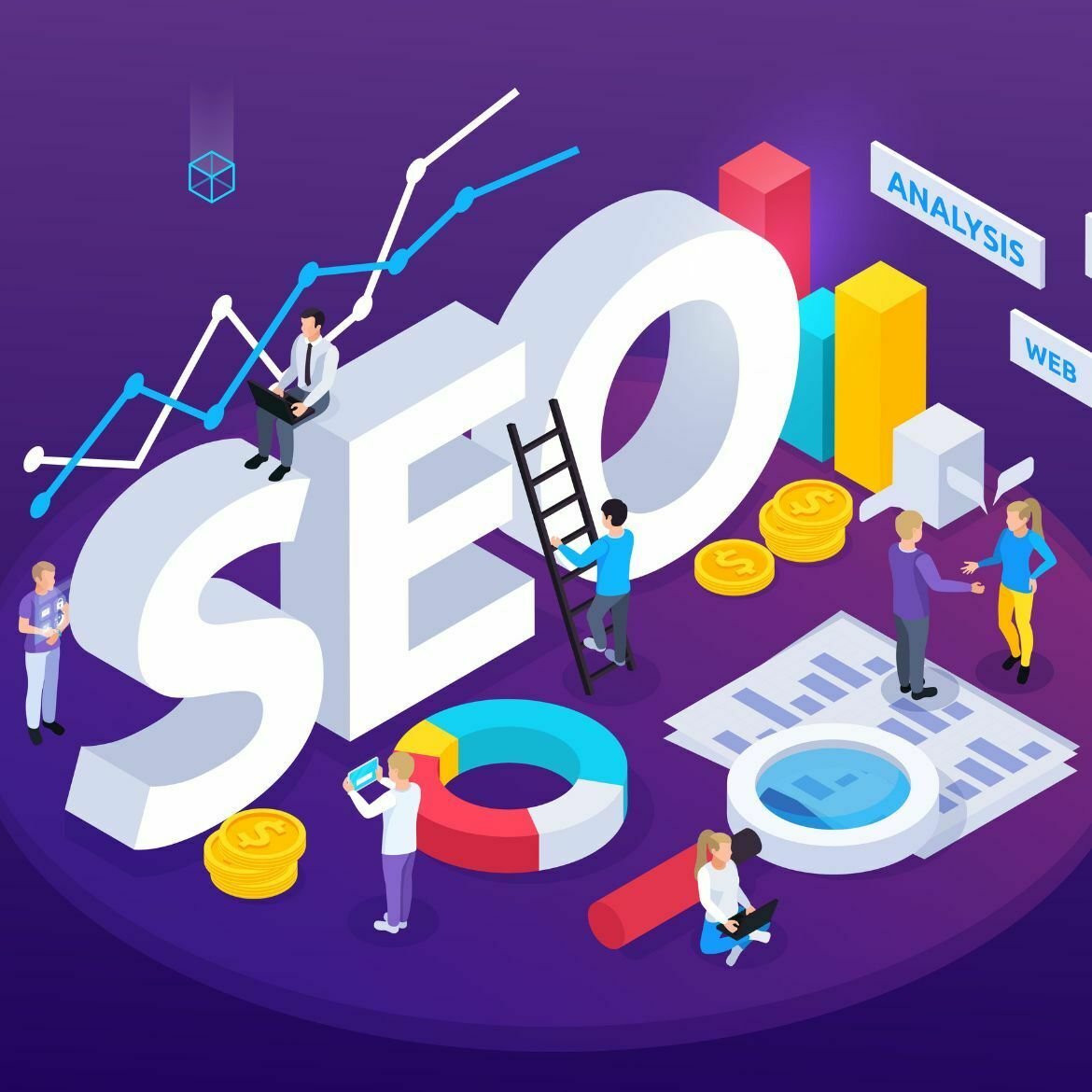

How to Optimize Your Content for On-Page SEO
To optimize your content for on-page SEO, you should:
Conduct Keyword Research:
Identify the keywords and phrases that your target audience is searching for.
Use Keywords Strategically:
Include your target keywords in your title tags, meta descriptions, headers, and throughout your content.
Optimize Your Content:
Make sure your content is well-written, engaging, and informative.
Use Header Tags:
Use header tags (H1, H2, H3) to break up your content and make it more readable.
Include Internal Links:
Link to other relevant pages on your website to improve user experience and encourage visitors to stay on your site longer.
Best Practices for On-Page SEO
To get the most out of your on-page SEO efforts, consider implementing the following best practices:
Use Descriptive URLs:
Use descriptive URLs that include your target keywords.
Write Compelling Meta Descriptions:
Write meta descriptions that accurately describe the content of your web page and include your target keywords.
Optimize Your Images:
Optimize your images by including alt tags and compressing their file sizes.
Improve Page Speed:
Improve your page speed by optimizing images, minifying CSS and JavaScript, and using a content delivery network (CDN).
Make Your Website Mobile-Friendly:
Ensure your website is mobile-friendly by using a responsive design and testing your site on various devices.
Use Structured Data:
Use structured data to help search engines better understand the content of your website.
Optimize for Featured Snippets:
Optimize your content for featured snippets by providing concise answers to commonly asked questions.
Common On Page SEO Mistakes to Avoid
When optimizing your website for on-page SEO, be sure to avoid the following common mistakes:
Keyword Stuffing:
Avoid overusing keywords in your content, as this can lead to a penalty from search engines.
Duplicate Content:
Avoid using duplicate content on your website, as this can negatively impact your rankings.
Neglecting User Experience:
Don’t forget about user experience when optimizing your website. Make sure your site is easy to navigate, loads quickly, and is mobile-friendly.
Ignoring Title Tags and Meta Descriptions:
Make sure to write unique and descriptive title tags and meta descriptions for each page on your website.
On Page SEO FAQs
Q. What is the difference between on-page and off-page SEO?
A. On-page SEO involves optimizing the content and structure of your website to improve its relevance and appeal to search engines, while off-page SEO involves optimizing external factors such as backlinks, social media signals, and online reputation.
Q. How important is on-page SEO for website ranking?
A. On-page SEO is crucial for website ranking because it helps search engines understand the content and relevance of your website. Without proper on-page optimization, search engines may not be able to properly index and rank your site, leading to a lower search engine ranking and less traffic to your site.
Q. How can I improve my on-page SEO?
A. To improve your on-page SEO, focus on creating high-quality, relevant content that targets specific keywords, using descriptive and optimized title tags and meta descriptions, optimizing your website structure and internal linking, improving your website speed, making your website mobile-friendly, using structured data, and optimizing for featured snippets.
Q. How long does it take to see results from on-page SEO?
A. The amount of time it takes to see results from on-page SEO can vary depending on a variety of factors, including the competitiveness of your keywords and the quality of your content. Generally, it can take several weeks or even months to see significant improvements in your search engine rankings.
Q. Can I do on-page SEO myself, or do I need to hire a professional?
A. While you can certainly do on-page SEO yourself, it can be helpful to hire a professional to ensure you are following best practices and maximizing your results. An experienced SEO specialist can help identify areas for improvement and provide guidance on the best on-page SEO strategies for your website.
Conclusion
In conclusion, on-page SEO is a critical component of any successful SEO strategy. By optimizing the content and structure of your website, you can improve your search engine rankings, attract more relevant traffic to your site, and achieve your business goals. Remember to focus on creating high-quality, engaging content, using strategic keywords, and following best practices to get the most out of your on-page SEO efforts.
Boost Your Online Presence with AnalyticsXpert's Professional SEO Services
At AnalyticsXpert, our digital marketing agency offers a wide range of SEO services to help your website rank higher on search engine results pages. Our team of experts utilizes the latest SEO techniques and tools to optimize your website’s content and structure, ensuring that it is fully optimized for search engines. With our SEO services, you can expect increased visibility, more traffic, and ultimately, more conversions for your business. Don’t let your competitors outrank you online – contact us today to learn more about how we can help you improve your SEO and achieve your digital marketing goals.
Why is Email Marketing Important
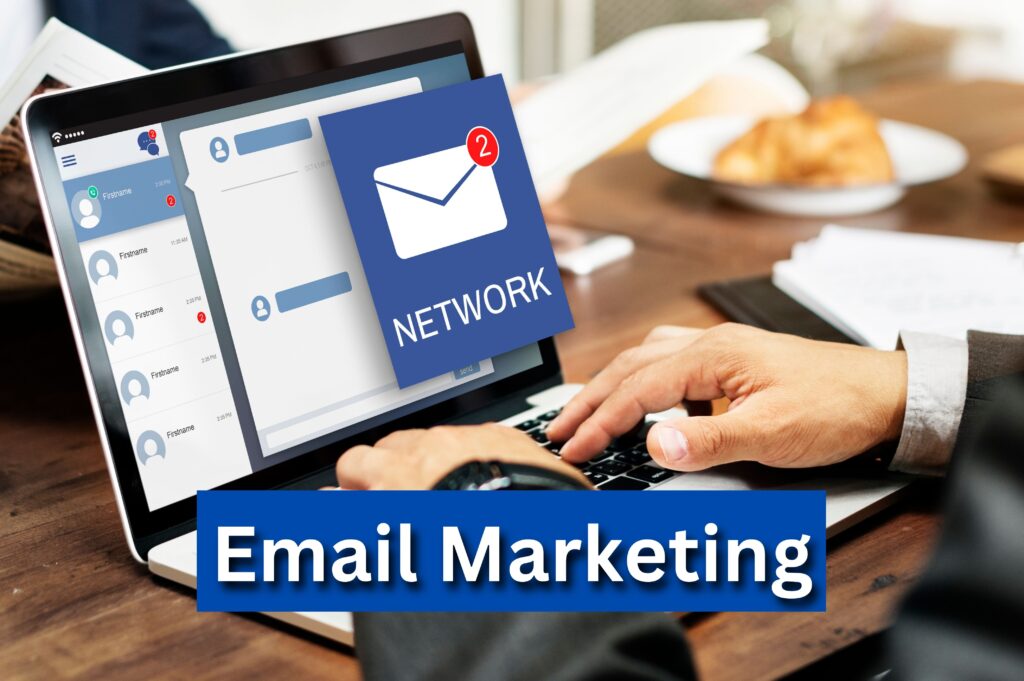
Email marketing is a crucial aspect of digital marketing that has become more important than ever before. It is one of the most effective ways to reach out to potential customers and retain existing ones. Besides this, there are a lot of other reasons why email marketing is important for businesses.
In this article, we will discuss why email marketing is important and how it can help businesses grow.
What is Email Marketing
Email marketing is the process of sending commercial messages to a group of people via email. The purpose of email marketing is to promote a business’s products or services, build brand awareness, and nurture customer relationships. Email marketing allows businesses to communicate directly with their target audience and provide them with relevant content.
What Are The Benefits Of Email Communication
It is mostly asked what are benefits of email communication are and why email marketing is important. Here are a few benefits mentioned below.
Cost-Effective
One of the biggest benefits of email marketing is that it is cost-effective. Unlike traditional marketing methods such as print ads, TV commercials, and billboards, email marketing requires minimal investment. Businesses can reach a large number of people with just a few clicks of a button, and the cost per message is significantly lower than other forms of marketing.
Wide Reach
Email marketing allows businesses to reach a wide audience. With over 4 billion email users worldwide, businesses can reach people from all corners of the world. Email marketing also allows businesses to target specific audiences based on their demographics, interests, and behavior.
Personalization
Email marketing allows businesses to personalize their messages for each recipient. By segmenting their email list based on demographics, interests, and behavior, businesses can send personalized messages that resonate with their audience. Personalized messages have been shown to increase engagement and conversions.
Trackable and Measurable
Another benefit of email marketing is that it is trackable and measurable. Businesses can track the success of their email campaigns by monitoring metrics such as open rates, click-through rates, and conversion rates. This allows businesses to make data-driven decisions and optimize their email campaigns for better results.


Types Of Emails
There are several types of emails that businesses can use for email marketing. Let’s take a look at some of the most common types of emails.
Newsletters
Newsletters are a type of email that businesses use to keep their subscribers informed about their latest products or services, industry news, and other relevant information. Newsletters are usually sent on a regular basis, such as weekly or monthly.
Promotional Emails
Promotional emails are a type of email that businesses use to promote their products or services. These emails usually include a special offer, discount, or promotion to entice the recipient to make a purchase.
Welcome Emails
Welcome emails are a type of email that businesses send to new subscribers to introduce themselves.
Transactional Emails
Transactional emails are a type of email that businesses send in response to a user action. For example, when a customer makes a purchase, they receive a confirmation email. Transactional emails are also used for password resets, account updates, and other similar actions.
Best Practices For Email Marketing
To get the most out of email marketing, businesses need to follow some best practices. Here are some of the best practices for email marketing.
Build a Quality Email List
Building a quality email list is critical for the success of email marketing. Businesses should focus on building a list of subscribers who are interested in their products or services. They can do this by offering a lead magnet, such as a free eBook or webinar, in exchange for the user’s email address.
Create Compelling Subject Lines
The subject line is the first thing that a recipient sees when they receive an email. A compelling subject line can increase open rates and improve the success of an email campaign. Businesses should focus on creating subject lines that are clear, concise, and attention-grabbing.
Use Personalization and Segmentation
Personalization and segmentation are key to the success of email marketing. By segmenting their email list and sending personalized messages, businesses can increase engagement and conversions. They can segment their list based on demographics, interests, behavior, and other factors.
Make Emails Mobile-Friendly
With more and more people using mobile devices to check their email, it’s essential that businesses make their emails mobile-friendly. This means creating emails that are easy to read and navigate on a small screen.
Include a Clear Call to Action
Every email should have a clear call to action (CTA) that encourages the recipient to take action. The CTA should be clear, concise, and easy to understand. Businesses should focus on creating CTAs that are relevant to the content of the email and the recipient’s interests.
Challenges And Solutions
While email marketing has many benefits, there are also some challenges that businesses may face. Here are some of the most common challenges and solutions for email marketing.
Email Deliverability
One of the biggest challenges of email marketing is email deliverability. Emails can get caught in spam filters or not reach the recipient’s inbox at all. To overcome this challenge, businesses should focus on building a quality email list, avoiding spam trigger words, and following best practices for email design and content.
Subscriber Engagement
Another challenge of email marketing is subscriber engagement. Even if an email reaches the recipient’s inbox, they may not open it or take action. To increase engagement, businesses should focus on creating compelling subject lines, personalizing their messages, and including clear CTAs.
Email Content and Design
Email content and design are critical to the success of an email campaign. Businesses should focus on creating content that is relevant and valuable to their audience. They should also ensure that their emails are visually appealing and easy to read.
Conclusion
In conclusion why email marketing is important, email marketing is an essential component of digital marketing that can help businesses grow. By leveraging the benefits of email marketing, businesses can reach a wide audience, personalize their messages, and track the success of their campaigns. While there are some challenges to email marketing, following best practices can help businesses overcome them and achieve success.
Email Marketing FAQs
Q. What is the best time to send an email?
A. The best time to send an email depends on the audience and the content of the email. Generally, the best time to send an email is on Tuesday or Thursday between 10 am and 11 am.
Q. How often should I send emails?
A. The frequency of email campaigns depends on the audience and the content of the emails. Generally, 2-4 emails per month is a good starting point, but businesses should test different frequencies to see what works best for their audience.
Q. Can I buy an email list?
A. No, buying an email list is recommended. Not only is it unethical, but it can also damage the reputation of the business and lead to low engagement rates and high unsubscribe rates.
Q. How can I measure the success of my email campaign?
A. The success of an email campaign can be measured through metrics such as open rates, click-through rates, conversion rates, and revenue generated. Businesses should set specific goals and track these metrics to determine the effectiveness of their campaigns.
Q. Can I use emojis in my subject lines?
A. Yes, emojis can be used in subject lines, but they should be used sparingly and strategically. Too many emojis can make the subject line look unprofessional and may be flagged as spam by email providers.
Partner with AnalyticsXpert for Expert Email Marketing Services
At AnalyticsXpert, we understand the importance of email marketing and how it can benefit businesses of all sizes. That’s why we offer a wide range of email marketing services, including email campaign creation, list segmentation, email automation, and more. Our team of experienced marketers will work closely with you to create custom email campaigns that resonate with your audience and drive engagement. Contact us today to learn more about how our email marketing services can help grow your business.
What is Pay Per Click (PPC) Advertising
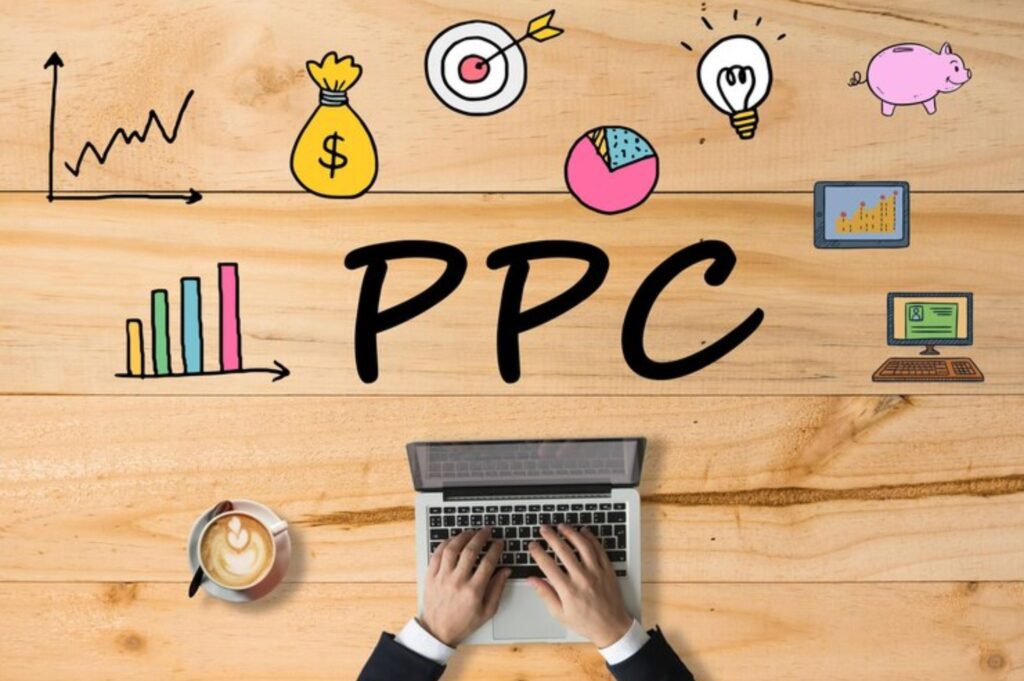
Pay per click (PPC) advertising is a popular digital marketing strategy that allows businesses to place ads on search engines, social media platforms, and other websites, and only pay when a user clicks on their ad. PPC advertising is a cost-effective way to reach a large audience and drive targeted traffic to a website.
In this article, we’ll explain the basics of pay per click advertising and how it works.
Table Of Contents
What is Pay Per Click Advertising?
How Does Pay Per Click Advertising Work?
The Benefits of Pay Per Click Advertising
Types of Pay Per Click Advertising
Creating a Pay Per Click Campaign
Measuring and Optimizing Your Pay Per Click Campaign
Common Pay Per Click Advertising Mistakes to Avoid
Pay Per Click Advertising FAQs
How Does Pay Per Click Advertising Work?
Pay per click advertising works by allowing businesses to bid on specific keywords or phrases that are relevant to their product or service. When a user searches for those keywords, the search engine displays ads related to those keywords. The order of the ads is determined by a variety of factors, including the bid amount and the relevance and quality of the ad.
When a user clicks on an ad, the business is charged a fee. This fee is determined by the bid amount and the competitiveness of the keywords. Advertisers set a daily budget for their campaigns, and once that budget is reached, their ads will no longer be displayed.
The Benefits of Pay Per Click Advertising
Pay per click advertising has a number of benefits for businesses of all sizes. Some of the most significant benefits include:
- Targeted traffic: Pay per click advertising allows businesses to target specific audiences based on factors such as location, demographics, and search history.
- Cost-effective: With pay per click advertising, businesses only pay when a user clicks on their ad, making it a cost-effective way to reach a large audience.
- Measurable results: Pay per click advertising provides detailed analytics and data that can be used to measure the effectiveness of a campaign and make improvements.
- Quick results: Unlike other forms of digital marketing, pay per click advertising can generate results quickly, often within hours or days of launching a campaign.
Types of Pay Per Click Advertising
There are several types of pay per click advertising, including:
Search Ads
Search ads are the most common type of pay per click advertising. These ads appear at the top of search engine results pages (SERPs) and are triggered by specific keywords. Search ads are highly targeted and can generate a high volume of traffic to a website.
Display Ads
Display ads are visual ads that appear on websites, often in the form of banner ads or pop-ups. These ads are less targeted than search ads but can be used to build brand awareness and reach a wider audience.
Social Media Ads
Social media ads appear on social media platforms such as Facebook, Instagram, and Twitter. These ads are highly targeted and can be used to reach specific demographics or interests.

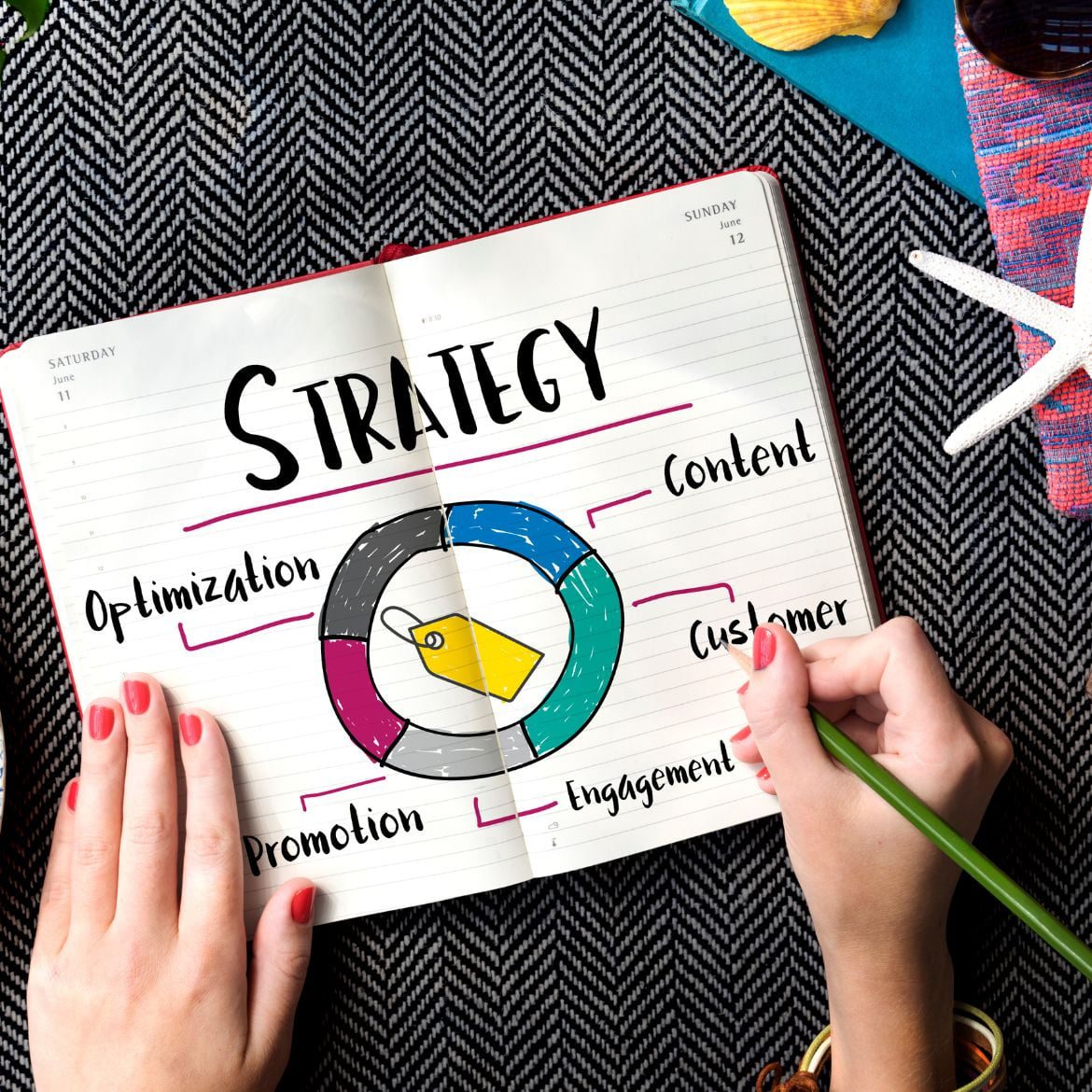
Creating a Pay Per Click Campaign
Creating a successful pay per click campaign requires careful planning and execution. Here are some key steps to consider when creating a pay per click campaign.
Keyword Research
Keyword research is the foundation of any successful pay per click campaign. It involves identifying the keywords and phrases that are most relevant to your business and your target audience. You can use keyword research tools such as Google Keyword Planner or SEMrush to help you identify the best keywords to target.
Ad Copy
Once you’ve identified your keywords, you need to create compelling ad copy that will entice users to click on your ad. Your ad copy should be clear, concise, and relevant to the keywords you’re targeting. It should also include a clear call to action (CTA) that encourages users to click on your ad. These are some tips for writing effective ad copy
Landing Pages
When a user clicks on your ad, they should be directed to a landing page that is relevant to the ad they clicked on. Your landing page should be designed to convert users into customers, with a clear message, compelling visuals, and a strong CTA.
Bidding and Budgeting
Bidding and budgeting are important aspects of pay per click advertising. You need to set a budget for your campaign and determine how much you’re willing to pay for each click. Your bid amount will determine where your ad appears in the search results and how often it is displayed.
Measuring and Optimizing Your Pay Per Click Campaign
Measuring and optimizing your pay per click campaign is essential for achieving long-term success. Here are some key metrics to monitor:
Conversion Tracking
Conversion tracking allows you to track the actions users take on your website after clicking on your ad. This could include making a purchase, filling out a form, or downloading a whitepaper. By tracking conversions, you can determine the ROI of your pay per click campaign.
A/B Testing
A/B testing involves testing different variations of your ad copy, landing pages, and other elements of your campaign to determine which performs best. By testing different elements of your campaign, you can make data-driven decisions to optimize your campaign for better results.
Quality Score
Quality score is a metric used by search engines to determine the relevance and quality of your ad. A higher quality score can lead to lower costs per click and higher ad rankings. To improve your quality score, focus on creating relevant ad copy, landing pages, and targeting highly relevant keywords.
Cost Per Click
Cost per click (CPC) is the amount you pay each time a user clicks on your ad. By monitoring your CPC, you can determine how much you’re spending on your campaign and make adjustments to your budget and bidding strategy as needed.
Common Pay Per Click Advertising Mistakes to Avoid
There are several common pay per click advertising mistakes that businesses should avoid, including:
- Poor keyword selection: Choosing the wrong keywords can lead to irrelevant clicks and wasted ad spend.
- Poor ad copy: Your ad copy should be compelling and relevant to the keywords you’re targeting.
- Poor landing pages: Your landing pages should be designed to convert users into customers.
- Overbidding: Overbidding can lead to higher costs per click and wasted ad spend.
- Lack of testing: A/B testing is essential for optimizing your pay per click campaign for better results.

Conclusion
Pay per click advertising can be an effective way to drive traffic to your website and reach your target audience. By carefully selecting keywords, creating compelling ad copy and landing pages, and monitoring your campaign closely, you can achieve long-term success with pay per click advertising. Remember to measure your results and optimize your campaign regularly to ensure you’re getting the best possible ROI.
Pay Per Click Advertising FAQs
Q. What is a good click-through rate for a PPC campaign?
A good click-through rate (CTR) for a pay per click campaign depends on a variety of factors, including the industry, the type of ad, and the target audience. A CTR of 2-3% is generally considered good, but higher or lower CTRs may be acceptable depending on the circumstances.
Q. How can I improve my Quality Score?
To improve your Quality Score, focus on creating relevant ad copy, landing pages, and targeting highly relevant keywords. Improving your click-through rate and ensuring a high level of engagement on your website can also help improve your Quality Score.
Q. How much should I budget for a pay per click campaign?
The amount you should budget for a pay per click campaign depends on your business goals, the competitiveness of your industry, and the keywords you’re targeting. It’s important to set a budget that you’re comfortable with and to monitor your campaign closely to ensure you’re getting the best possible ROI.
Q. How long does it take to see results from a pay per click campaign?
The time it takes to see results from a pay per click campaign can vary depending on a variety of factors, including the competitiveness of your industry, the quality of your ad copy and landing pages, and your budget. Generally, it’s best to allow at least a few weeks to see meaningful results from your campaign.
Q. Can I use pay per click advertising for my small business?
Yes, pay per click advertising can be an effective marketing strategy for small businesses. By targeting specific keywords and demographics, you can reach your ideal customers and drive traffic to your website. However, it’s important to have a clear understanding of your goals and to carefully monitor your campaign to ensure you’re getting the best possible ROI.
Experience the Power of Effective Pay Per Click Advertising with AnalyticsXpert
At AnalyticsXpert, we specialize in providing top-notch pay per click advertising services to help businesses reach their target audience and drive traffic to their website. Our team of experienced PPC experts will work with you to develop a customized strategy tailored to your business goals and industry, ensuring you get the best possible ROI. We pride ourselves on staying up-to-date with the latest industry trends and techniques to deliver results that exceed your expectations. Contact us today to learn more about how we can help you achieve your marketing goals with our PPC services.
What is SEO Marketing – Search Engine Optimization?
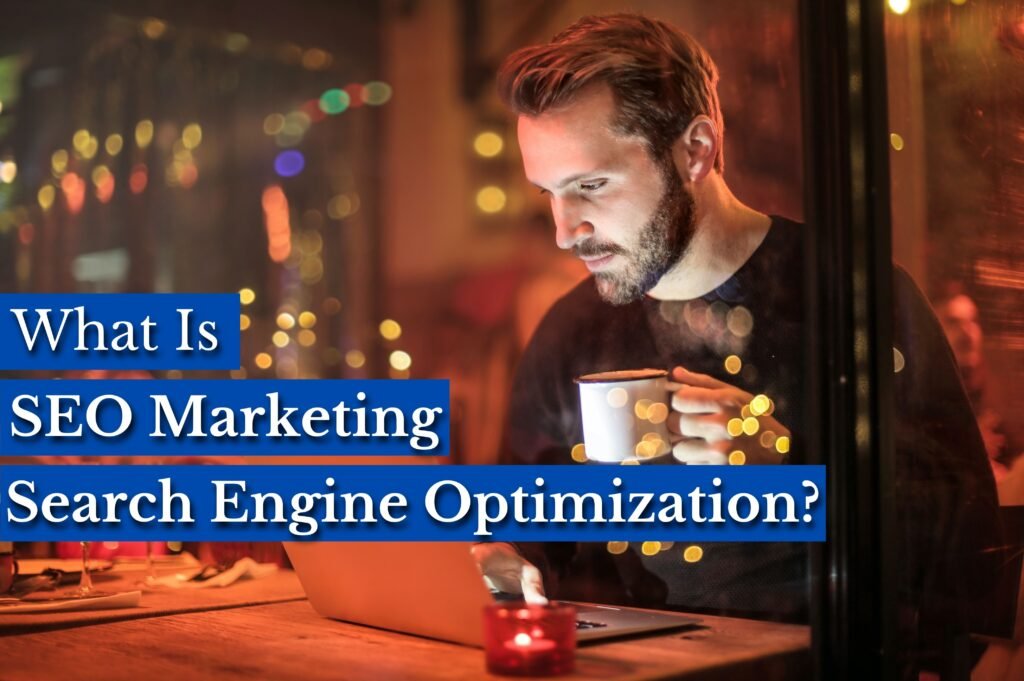
In today’s digital age, it is crucial for businesses to have a strong online presence. That’s why we should know what is SEO marketing. Search Engine Optimization (SEO) is the practice of improving the visibility and ranking of a website on search engine results pages (SERPs). SEO marketing is essential for businesses that want to reach their target audience, increase website traffic, and ultimately grow their business.
SEO marketing has come a long way since the early days of search engines like Yahoo and AltaVista. The first search engine optimization techniques involved keyword stuffing and other spammy tactics that are now frowned upon by search engines. Today, SEO marketing has evolved into a sophisticated and constantly evolving field that requires skill and expertise to execute effectively.
How search engines work
Before diving into the different aspects of SEO, it’s important to understand how search engines work. Search engines use algorithms to crawl and index websites based on various factors, such as content relevance, page structure, and backlinks. The most popular search engines, such as Google, Bing, and Yahoo!, use a similar process to determine the relevance of a website’s content and rank it on the SERPs.
Crawling
Search engines use bots, also known as crawlers or spiders, to scan websites and collect data about their content, structure, and other relevant factors. Crawling allows search engines to find new pages and update their index with the latest information.
Indexing
After crawling a website, search engines store the collected data in an index, which serves as a database of all the web pages they’ve discovered. The index allows search engines to quickly retrieve relevant pages when a user enters a search query.
Ranking
When a user enters a search query, the search engine uses an algorithm to determine which pages in the index are most relevant to the query. The algorithm takes into account various factors, such as keyword relevance, page authority, and user engagement, to rank the pages and display them on the SERPs.
The Basic Techniques of SEO Marketing
Here are the basic techniques of SEO marketing for the beginner’s guide to SEO.
On-page optimization
On-page optimization refers to the process of optimizing a website’s content and structure to make it more visible and relevant to search engines. On-page optimization involves various techniques, such as optimizing title tags, meta descriptions, headers, content, URL structure, and internal linking.
Title tags
The title tag is one of the most important on-page optimization factors, as it tells search engines and users what the page is about. The title tag should be unique, relevant, and include the primary keyword.
Meta descriptions
The meta description is a brief summary of the page’s content that appears below the title tag on the SERPs. The meta description should be compelling, informative, and include the primary keyword.
Headers
Headers, such as H1, H2, and H3, are important for organizing the page’s content and signaling to search engines what the page is about. Headers should be used to structure the page’s content and include relevant keywords.
Content
The content of the page should be informative, engaging, and relevant to the user’s search query. The content should be structured with headers, subheaders, and bullet points to make it easy to read and understand. The use of relevant keywords throughout the content can also help improve the page’s relevance and ranking on the SERPs.
URL structure
The URL structure should be clear and concise, including the primary keyword and avoiding unnecessary characters or numbers. A clean URL structure can help search engines and users understand what the page is about.
Internal linking
Internal linking refers to the process of linking to other pages on the same website. Internal linking can help improve the user’s navigation experience and signal to search engines which pages are most important.
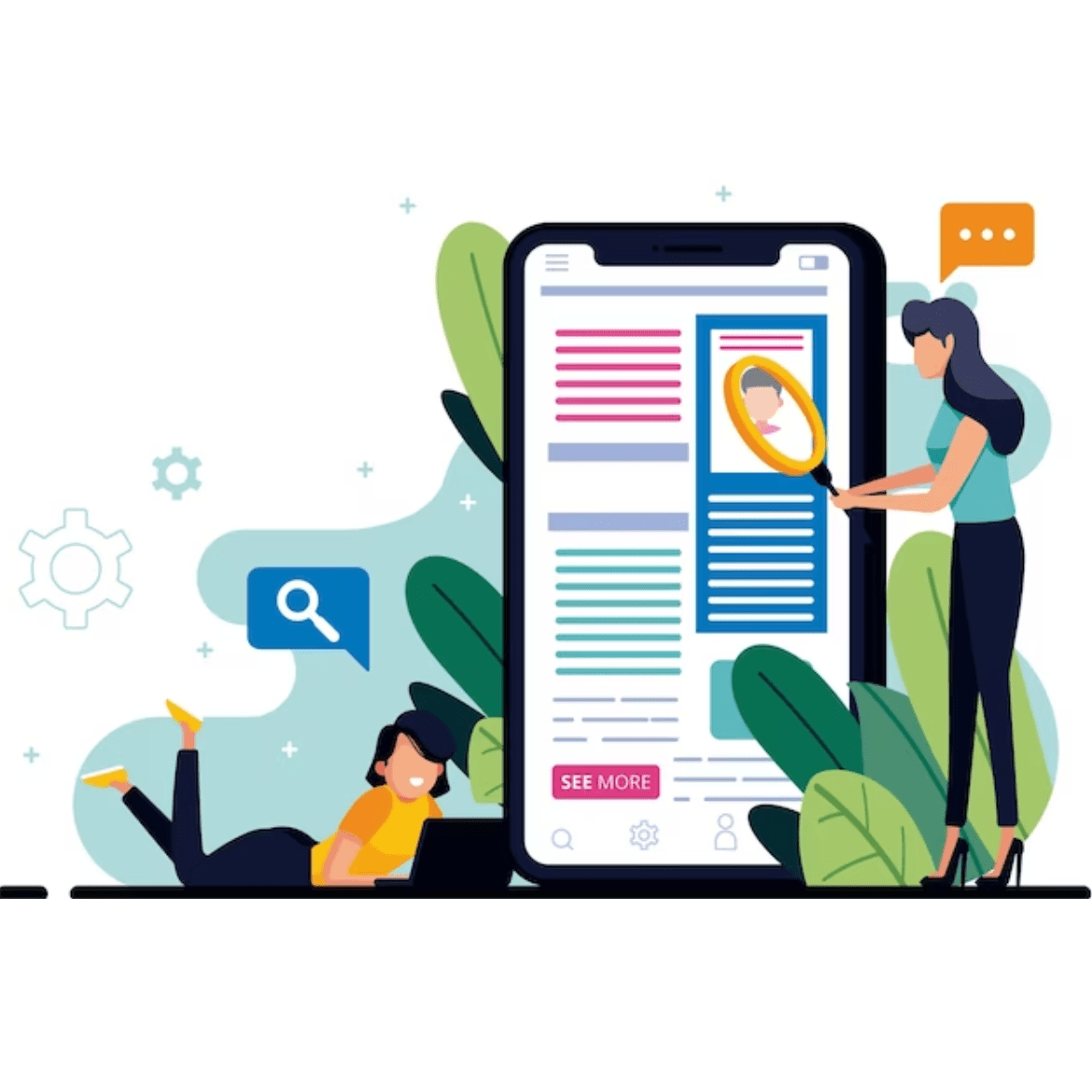
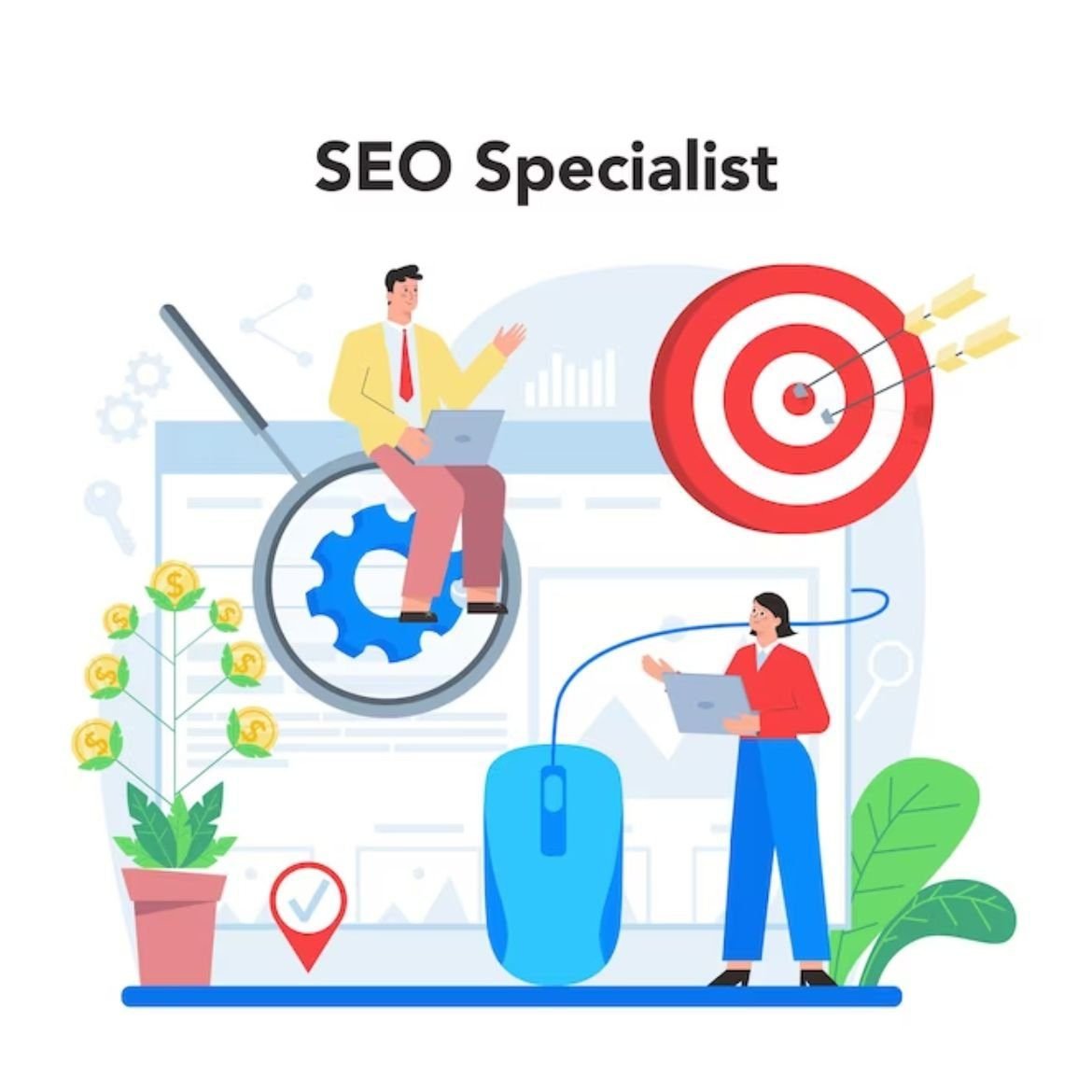
Technical SEO
Technical SEO refers to the process of optimizing a website’s structure and code to improve its visibility and ranking on the SERPs. Technical SEO involves various techniques, such as improving site speed, mobile optimization, site structure, and schema markup.
Site speed
Site speed is an important factor in search engine ranking, as faster-loading websites are more likely to rank higher than slower-loading websites. Improving site speed can involve various techniques, such as optimizing images, minimizing code, and using a content delivery network (CDN).
Mobile optimization
With the majority of internet users accessing websites on mobile devices, mobile optimization is essential for improving a website’s visibility and ranking. Mobile optimization can involve various techniques, such as using responsive design, optimizing images, and improving site speed.
Site structure
Site structure refers to the way a website is organized and navigated. A clear and logical site structure can help search engines and users understand the hierarchy of the website and find relevant content more easily.
Schema markup
Schema markup is a type of microdata that helps search engines understand the content of a website more clearly. Schema markup can be used to mark up various types of content, such as products, events, and reviews, and can help improve the visibility and relevance of the website on the SERPs.
Off-page optimization
Off-page optimization refers to the process of improving a website’s ranking and visibility through external factors, such as backlinks, social media, local SEO, and guest blogging.
Backlinks
Backlinks are links from other websites that point to your website. Backlinks are an important factor in search engine ranking, as they signal to search engines that your website is a trusted and authoritative source. However, not all backlinks are created equal, and high-quality backlinks from reputable websites are more valuable than low-quality backlinks from spammy websites. That was a short guide to backlinks for SEO.
Social media
Social media can help improve a website’s visibility and reach by promoting content and driving traffic back to the website. Social media signals can also help signal to search engines which pages are most popular and relevant.
Local SEO
Local SEO involves optimizing a website for local search queries, such as “best coffee shops near me” or “plumbers in my area.” Local SEO can involve various techniques, such as optimizing Google My Business listings, including local keywords in content and meta tags, and building local citations and backlinks.
Guest blogging
Guest blogging involves writing content for other websites in your niche and including a link back to your website. Guest blogging can help improve your website’s visibility and reach, as well as build backlinks from reputable websites.
The Benefits Of SEO
The benefits of SEO for businesses are numerous, including increased website traffic, higher search engine rankings, better user experience, and higher conversion rates. By improving a website’s visibility and relevance on the SERPs, SEO can help businesses attract more potential customers and improve their online presence.
Increased website traffic
By ranking higher on the SERPs, websites can attract more potential customers and increase their website traffic. This increased traffic can lead to higher brand awareness, more leads, and increased sales for businesses.
Higher search engine rankings
SEO can help businesses rank higher on the SERPs, which can lead to increased visibility and credibility in the eyes of potential customers. Higher search engine rankings can also help businesses stay ahead of their competitors.
Better user experience
SEO can help improve the user’s navigation experience by making the website more organized, informative, and user-friendly. This can help reduce bounce rates and increase engagement, which can lead to better conversion rates.
Higher conversion rates
By attracting more targeted traffic and improving the user’s experience on the website, SEO can help businesses increase their conversion rates. This means that more visitors will take the desired action, such as making a purchase or filling out a contact form.
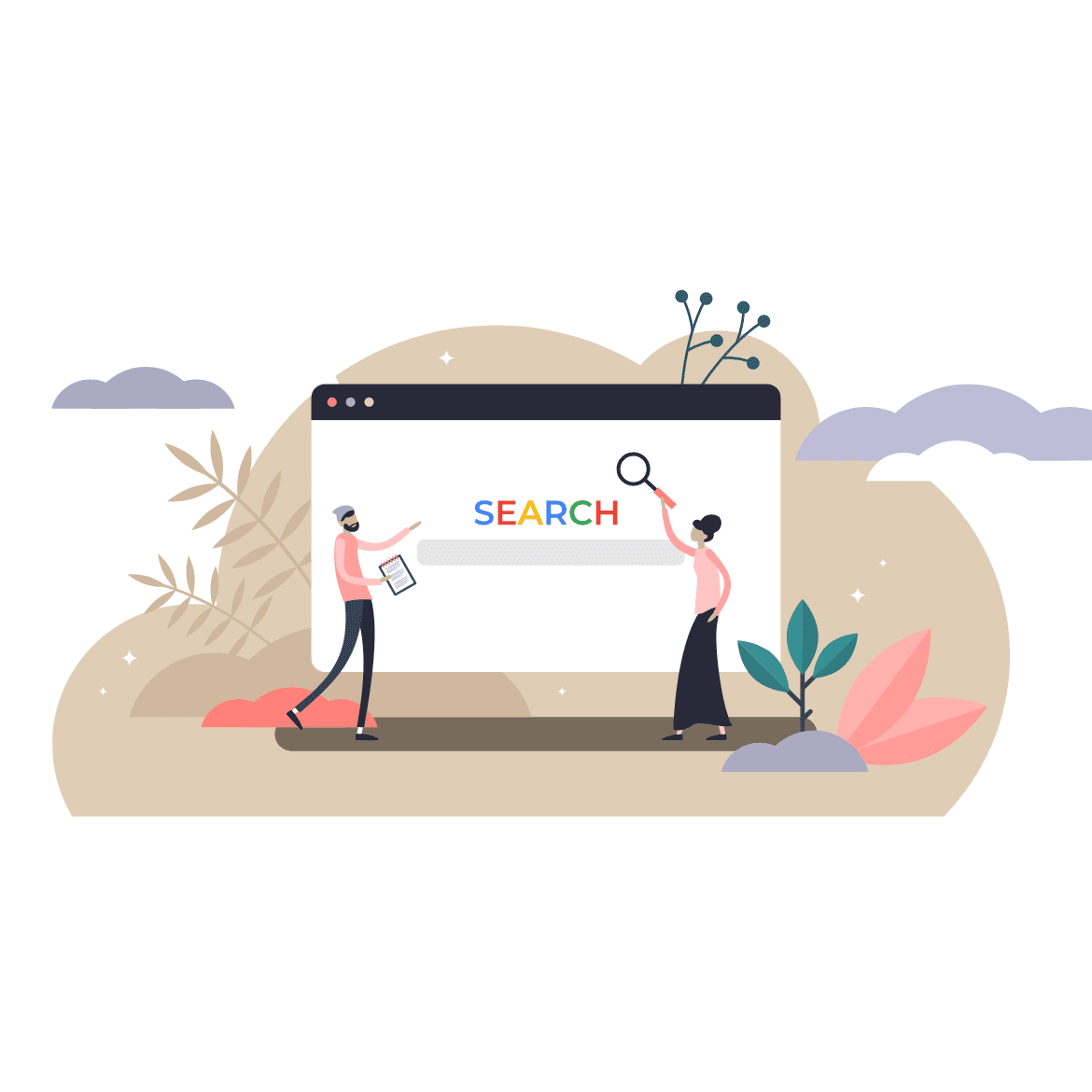
The Different Types of SEO
There are several different types of SEO marketing strategies, each with its own unique focus and goals. Some of the most common types of SEO include:
Local SEO
Local SEO is all about optimizing your website for local search queries. This can involve optimizing your website for local keywords, creating local business listings, and building backlinks from other local businesses.
E-commerce SEO
E-commerce SEO is all about optimizing your online store for search engines. This can involve optimizing product descriptions, creating targeted landing pages, and building high-quality backlinks from other e-commerce sites.
Mobile SEO
Mobile SEO is all about optimizing your website for mobile devices. This can involve optimizing your website’s structure and content for mobile devices, improving your website’s loading speed, and ensuring that your website is mobile-friendly.
Common SEO Mistakes
There are several common SEO mistakes that businesses make when implementing an SEO marketing strategy. These include:
Keyword stuffing
Keyword stuffing involves using too many keywords in your content, which can be seen as spammy by search engines and lead to lower search engine rankings.
Duplicate content
Duplicate content can be seen as spammy by search engines and lead to lower search engine rankings. It’s important to create original, valuable content that is optimized for search engines.
Ignoring mobile optimization
With more and more users accessing the internet on mobile devices, it’s essential to optimize your website for mobile devices. This can involve creating a mobile-friendly design, optimizing your content for mobile devices, and improving your website’s loading speed.
Not utilizing local SEO
If your business operates locally, it’s important to optimize your website for local search queries. This can involve creating local business listings, building backlinks from other local businesses, and optimizing your website for local keywords.
Future Of SEO Marketing
The field of SEO marketing is constantly evolving, and there are several trends that are likely to shape the future of SEO. These include:
The rise of voice search
With the increasing popularity of voice assistants like Alexa and Siri, voice search is becoming an increasingly important aspect of SEO marketing. Optimizing your website for voice search queries, which are typically longer and more conversational than traditional search queries, can help to improve your search engine rankings and attract more visitors to your website.
The importance of user experience
As search engines become more sophisticated, they are placing greater emphasis on user experience when determining search engine rankings. This means that businesses that prioritize user experience, by creating high-quality, valuable content and providing a seamless browsing experience, are likely to see improved search engine rankings and higher levels of engagement.
The growing importance of visual content
With the rise of visual social media platforms like Instagram and TikTok, visual content is becoming an increasingly important aspect of SEO marketing. By incorporating high-quality visual content, such as images and videos, into your website and social media profiles, you can attract more visitors to your website and build a stronger online presence.
Conclusion
SEO marketing is an essential aspect of digital marketing, helping businesses to improve their search engine rankings, attract more visitors to their website, and establish themselves as credible and authoritative sources of information. By utilizing key SEO strategies such as keyword research, content creation, link building, and social media optimization, businesses can improve their online presence and drive more conversions.
While SEO marketing is constantly evolving, it’s important for businesses to stay up-to-date with the latest trends and best practices in order to stay ahead of the competition. By prioritizing user experience, visual content, and voice search optimization, businesses can ensure that their SEO marketing strategy remains effective and impactful in the years to come.
FAQs Related To Why Hire A Digital Marketing Agency
Q: What is SEO marketing?
A: SEO marketing is the process of optimizing your website and online content to improve your search engine rankings and attract more visitors to your website.
Q: What are the benefits of SEO marketing?
A: The benefits of SEO marketing include increased visibility, increased website traffic, improved user experience, and increased brand credibility and trust.
Q: What are the different types of SEO?
A: The different types of SEO include local SEO, e-commerce SEO, and mobile SEO.
Q: What are some common SEO mistakes to avoid?
A: Some common SEO mistakes to avoid include keyword stuffing, duplicate content, ignoring mobile optimization, and not utilizing local SEO.
Q: What is the future of SEO marketing?
A: The future of SEO marketing is likely to be shaped by trends such as the rise of voice search, the importance of user experience, and the growing importance of visual content.
Get Expert Help with Your SEO Marketing Strategy from AnalyticsXpert
If you’re looking to improve your SEO marketing strategy, AnalyticsXpert is here to help. Our team of experienced digital marketing professionals can assist you in developing and implementing an effective SEO strategy that aligns with your business goals and drives results. With our complete SEO services from keyword research and content creation to link building and social media optimization, we have the expertise and knowledge needed to take your SEO marketing efforts to the next level. Contact us today to learn more about how we can help you improve your online presence and attract more visitors to your website.
Why Hire A Digital Marketing Agency
Why hire a digital marketing agency?. This question is mostly asked. In today’s digital age, having a strong online presence is critical for any business that wants to succeed. With the majority of consumers turning to the internet to research products and services, your online presence can make or break your business. That’s why it is crucial to focus on digital marketing for business 2023. But creating and maintaining an effective online presence can be a complex and time-consuming task, especially for small and medium-sized businesses with limited resources.
That’s where a digital marketing agency can help. A digital marketing agency can provide you with the expertise, tools, and resources you need to improve your online presence, attract more customers, and grow your business. In this article, we’ll explore the top reasons why hire a digital marketing agency and benefits of hiring a digital marketing agency.
Explore the top reasons why hire a digital marketing agency
Increased Expertise and Experience
Digital Marketing Expertise
Digital marketing agencies bring a wealth of expertise in different aspects of online marketing, such as content marketing, social media, email marketing, and more. They understand the latest trends, best practices, and industry-specific insights, and can help you apply them to your business.
Industry-Specific Knowledge
Digital marketing agencies have experience working with businesses in various industries. This allows them to gain industry-specific knowledge that can help them create effective marketing strategies that meet your business needs.
Diverse Skill Set
A digital marketing agency usually comprises a team of professionals with diverse skills, including copywriters, graphic designers, SEO specialists, and social media experts. This allows them to provide a comprehensive range of services to meet your online marketing needs.
Access to Advanced Tools and Technology
Second reason why hire a digital marketing agency:
Analytics and Tracking
Digital marketing agencies have access to advanced tools and technology that can help them track and analyze your website’s performance, user behavior, and conversions. This allows them to make data-driven decisions and optimize your marketing strategy.
Search Engine Optimization (SEO)
SEO is a critical component of online marketing. Digital marketing agencies have access to advanced SEO tools and techniques that can help your website rank higher in search engines, drive more organic traffic, and increase your online visibility.
Pay-Per-Click (PPC) Advertising
PPC advertising is an effective way to drive targeted traffic to your website. Digital marketing agencies have the expertise and experience to create and manage successful PPC campaigns that can generate leads and sales for your business.


Strategic and Results-Driven Approach
Customized Marketing Strategy
Digital marketing agencies work with you to create a customized marketing strategy that aligns with your business objectives and goals. They take the time to understand your target audience, competition, and unique selling propositions to create a marketing plan that works for your business.
Measurable Results and ROI
Digital marketing agencies track and measure the performance of your marketing campaigns and provide regular reports that show the results and return on investment (ROI) of your marketing efforts.
Continuous Optimization and Improvement
Digital marketing agencies continuously optimize and improve your marketing strategy to ensure that you get the best possible results. They use data and analytics to make informed decisions and adjust your strategy as needed.
Cost-Effective Solution
One of the considerable reason why hire a digital marketing agency is that digital marketing agencies offer a cost-effective solution for businesses that want to improve their online presence. Hiring an in-house team of digital marketers can be expensive, and it may not be feasible for small or medium-sized businesses with limited budgets. A digital marketing agency can provide the same level of expertise and services at a fraction of the cost. Additionally, digital marketing agencies offer fixed and predictable pricing, making it easier to budget and plan your marketing expenses.
Lower Costs
By outsourcing your digital marketing to an agency, you can save money on salaries, benefits, and other overhead costs associated with hiring in-house staff. Digital marketing agencies work on a project-by-project basis, and you only pay for the services you need.
No Need for In-House
Hiring When you hire a digital marketing agency, you don’t have to worry about finding, hiring, and training new staff members. This can be a time-consuming and expensive process, especially if you don’t have a lot of experience in digital marketing. By working with a digital marketing agency, you can access a team of experts who have the skills and knowledge to help you achieve your online marketing goals.
Fixed and Predictable
Pricing Most digital marketing agencies offer fixed and predictable pricing for their services, which makes it easier to budget and plan your marketing expenses. You’ll know exactly what you’re paying for upfront, and you won’t have to worry about unexpected expenses or hidden fees.
FAQs Related To Why Hire A Digital Marketing Agency
Q: How much does it cost to hire a digital marketing agency?
A: The cost of hiring a digital marketing agency can vary depending on the scope and complexity of the services you require. However, most digital marketing agencies offer fixed and predictable pricing, making it easier to budget and plan your marketing expenses.
Q: Will I have control over my digital marketing strategy if I hire an agency?
A: Yes, you will have input and control over your digital marketing strategy when working with an agency. The agency will work closely with you to understand your business needs and goals and create a customized marketing plan that aligns with your objectives.
Q: How long does it take to see results from digital marketing?
A: The timeline for seeing results from digital marketing can vary depending on the tactics used and the goals of your campaign. However, with a strategic and results-driven approach, a digital marketing agency can help you see measurable results in a matter of weeks or months.
Q: What kind of services do digital marketing agencies offer?
A: Digital marketing agencies offer a wide range of services, including search engine optimization (SEO), pay-per-click (PPC) advertising, social media marketing, email marketing, content marketing, and more. The specific services offered will depend on the agency and your business needs.
Q: How can I choose the right digital marketing agency for my business?
A: When choosing a digital marketing agency, it’s important to do your research and consider factors such as the agency’s experience, expertise, track record, pricing, and communication style. You should also look for an agency that takes the time to understand your business and goals and offers a customized approach to digital marketing.

Time-Saving and Efficient Process
Managing your digital marketing efforts on your own can be a time-consuming process, especially if you don’t have a lot of experience in the field. Hiring a digital marketing agency can save you time and allow you to focus on other areas of your business. With a digital marketing agency handling your online marketing, you can rest assured that your campaigns are being managed efficiently and effectively. Another reason why hire a digital marketing agency
Streamlined Process
Digital marketing agencies have streamlined processes in place to ensure that your campaigns are executed smoothly and efficiently. They have the tools and resources to manage multiple campaigns simultaneously and can handle all aspects of your online marketing, from strategy development to implementation and optimization.
Faster Results
Digital marketing agencies have the experience and knowledge to help you achieve your online marketing goals quickly and efficiently. They know which tactics and strategies work best for different industries and can help you see measurable results in a shorter amount of time.
Reduced Workload
By outsourcing your digital marketing to an agency, you can reduce your workload and focus on other areas of your business. This can be especially beneficial for small or medium-sized businesses that have limited staff and resources. With a digital marketing agency handling your online marketing, you can free up your time to focus on core business activities.
Scalability and Flexibility
Digital marketing agencies offer scalability and flexibility, which allows you to adjust your digital marketing strategy as your business grows and evolves. Whether you need to ramp up your marketing efforts during peak season or scale back during slower periods, a digital marketing agency can help you adapt to changes in the market and adjust your strategy accordingly. That’s why hire a digital marketing agency.
Ability to Scale
Digital marketing agencies have the resources and expertise to scale your campaigns up or down as needed. They can increase or decrease your marketing budget, adjust your targeting, and optimize your campaigns to ensure that you’re getting the best possible results.
Adaptability to Changes
Digital marketing agencies are experts in their field and stay up-to-date with the latest trends and techniques. They can help you adapt to changes in the market, such as algorithm updates or changes in consumer behavior, and adjust your strategy accordingly.
More Control Over Budget
Another significant benefit of hiring a digital marketing agency is having more control over your budget. When working with an agency, you’ll typically receive detailed reports and analysis of your marketing campaigns’ performance. This information allows you to make informed decisions about how to allocate your marketing budget and adjust your strategy to achieve better results.
Moreover, digital marketing agencies often provide fixed and predictable pricing, allowing you to plan and budget your marketing expenses more effectively. You can also avoid the additional costs associated with hiring and training in-house staff or investing in expensive tools and technology. So, these are the 6 or 5 Reasons why you should hire a digital marketing agency.
Conclusion
In conclusion, outsourcing your digital marketing to a reputable agency can bring many benefits to your business. With their expertise, experience, and access to advanced tools and technology, a digital marketing agency can help you improve your online presence, increase website traffic, and generate leads and sales for your business. Their strategic and results-driven approach, combined with cost-effectiveness, time-saving, scalability, flexibility, and budget control, make them a valuable asset to any business looking to grow and succeed in the digital landscape.
So, I hope you know very well now about why hire a digital marketing agency and why you need to hire a digital marketing agency right now


